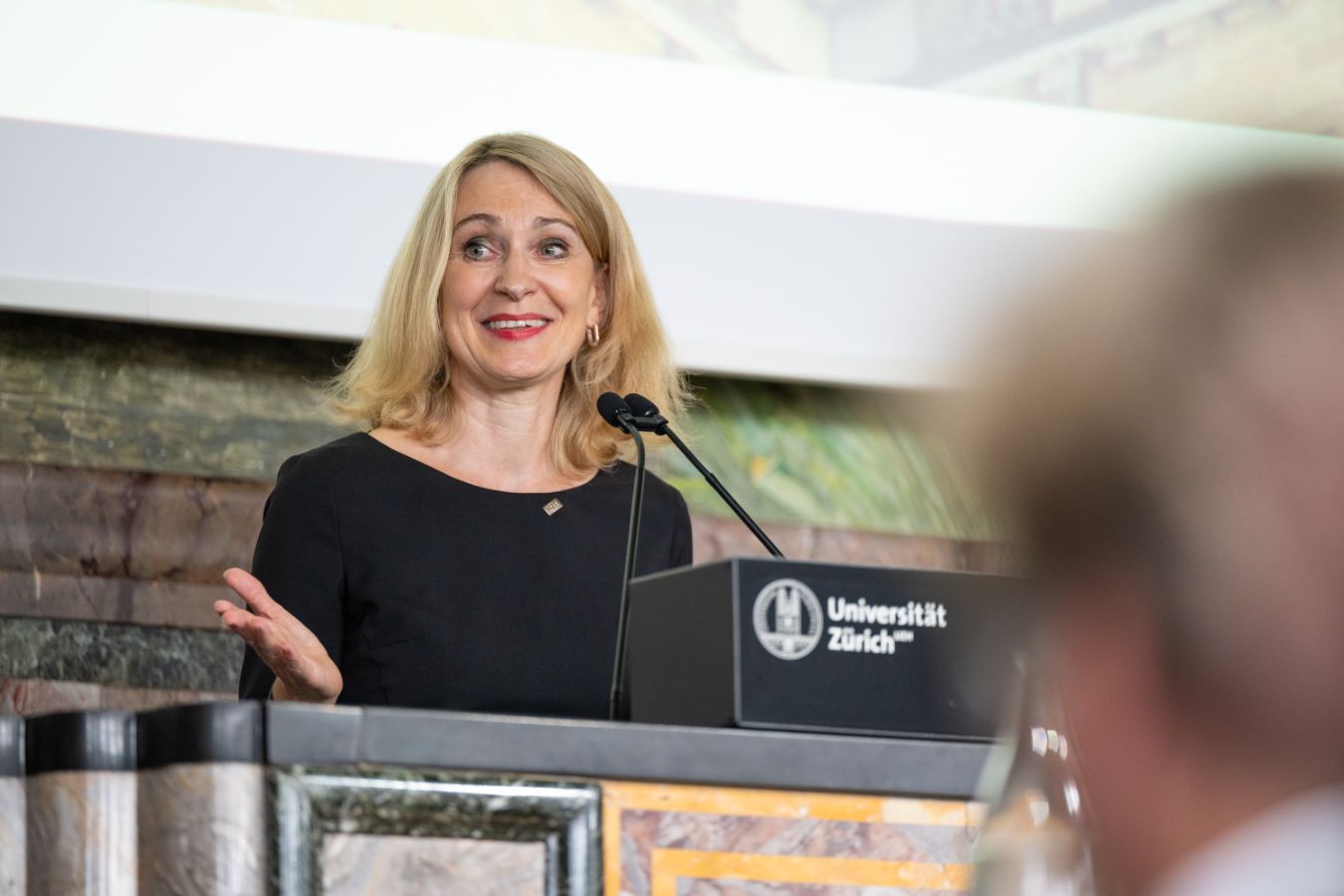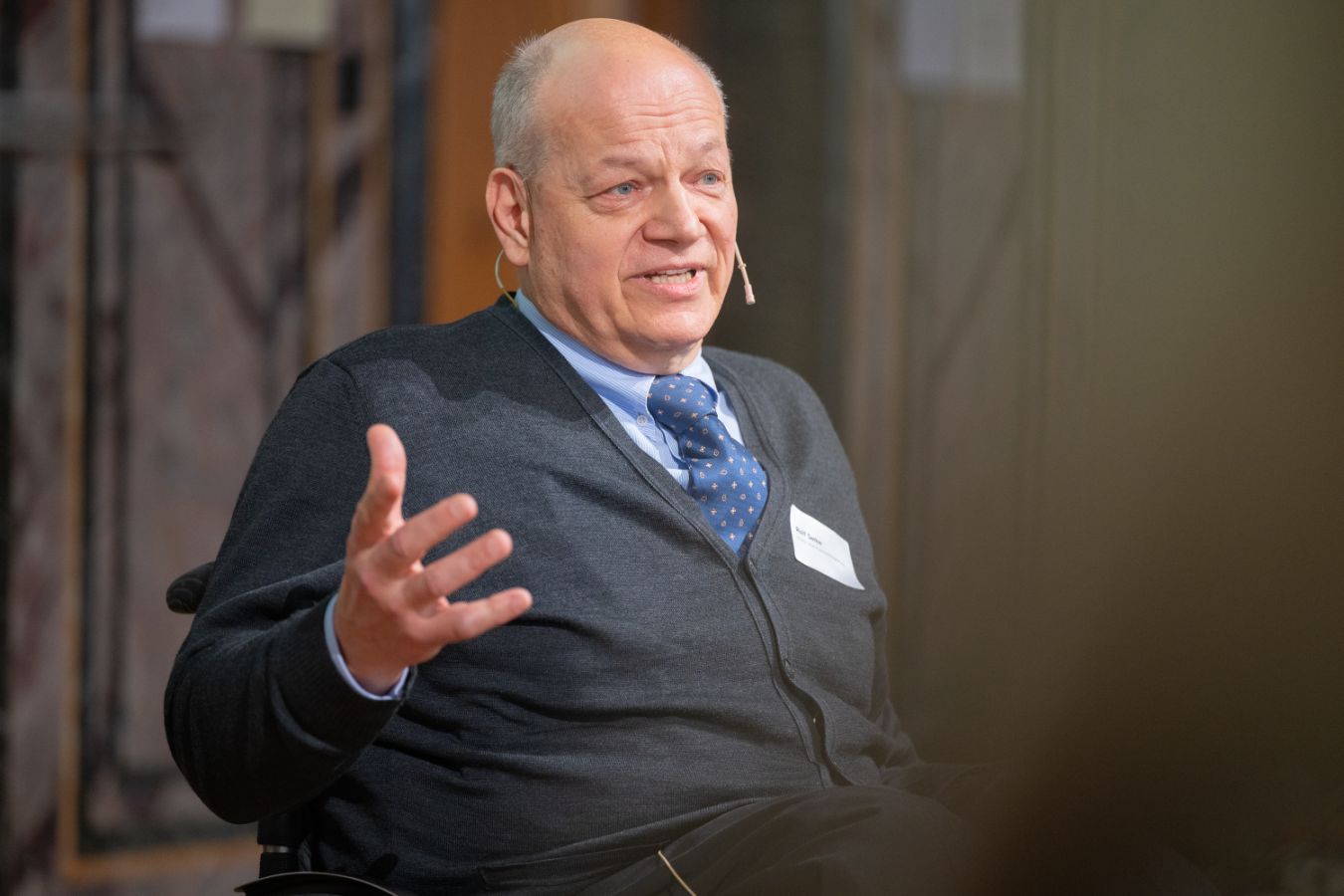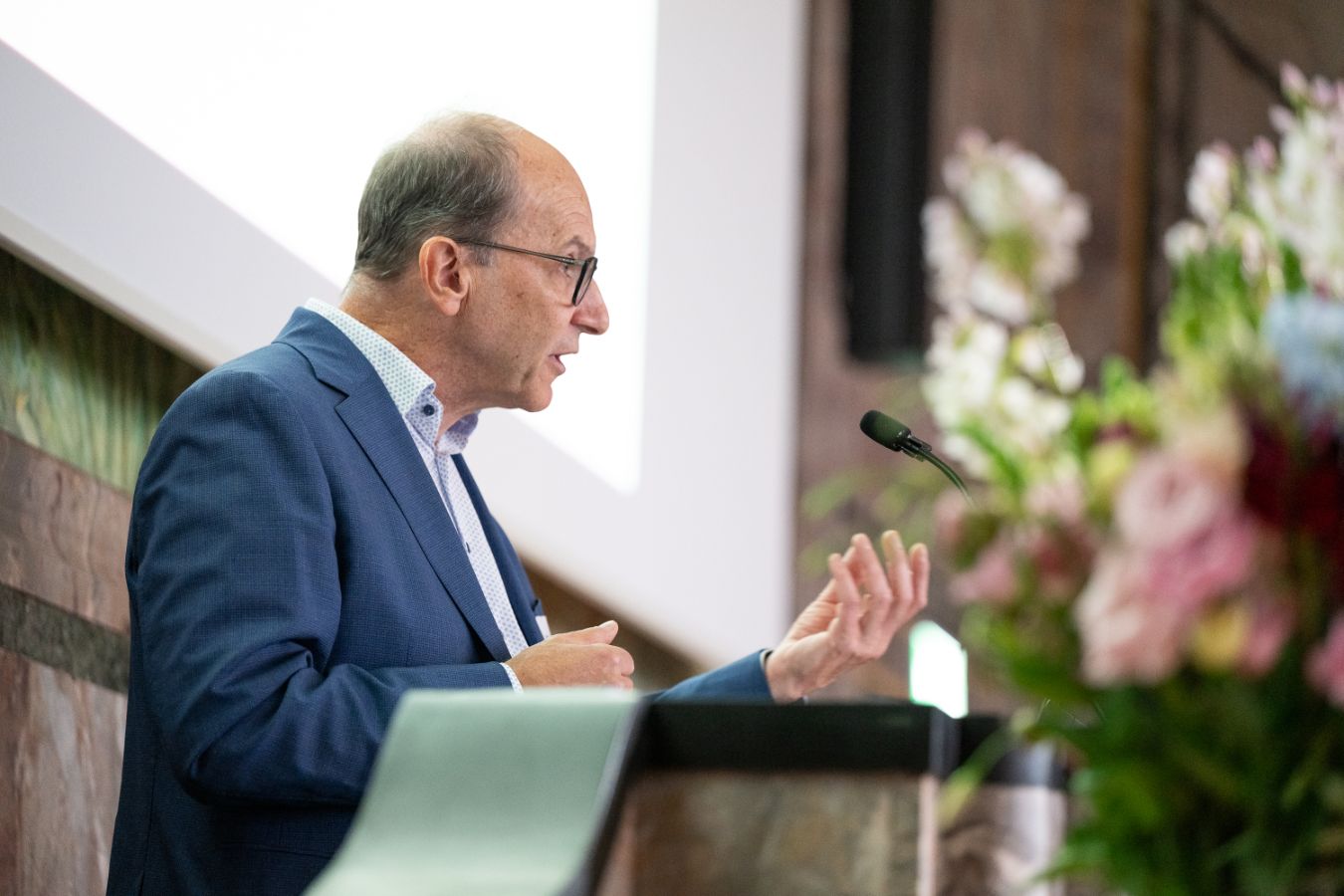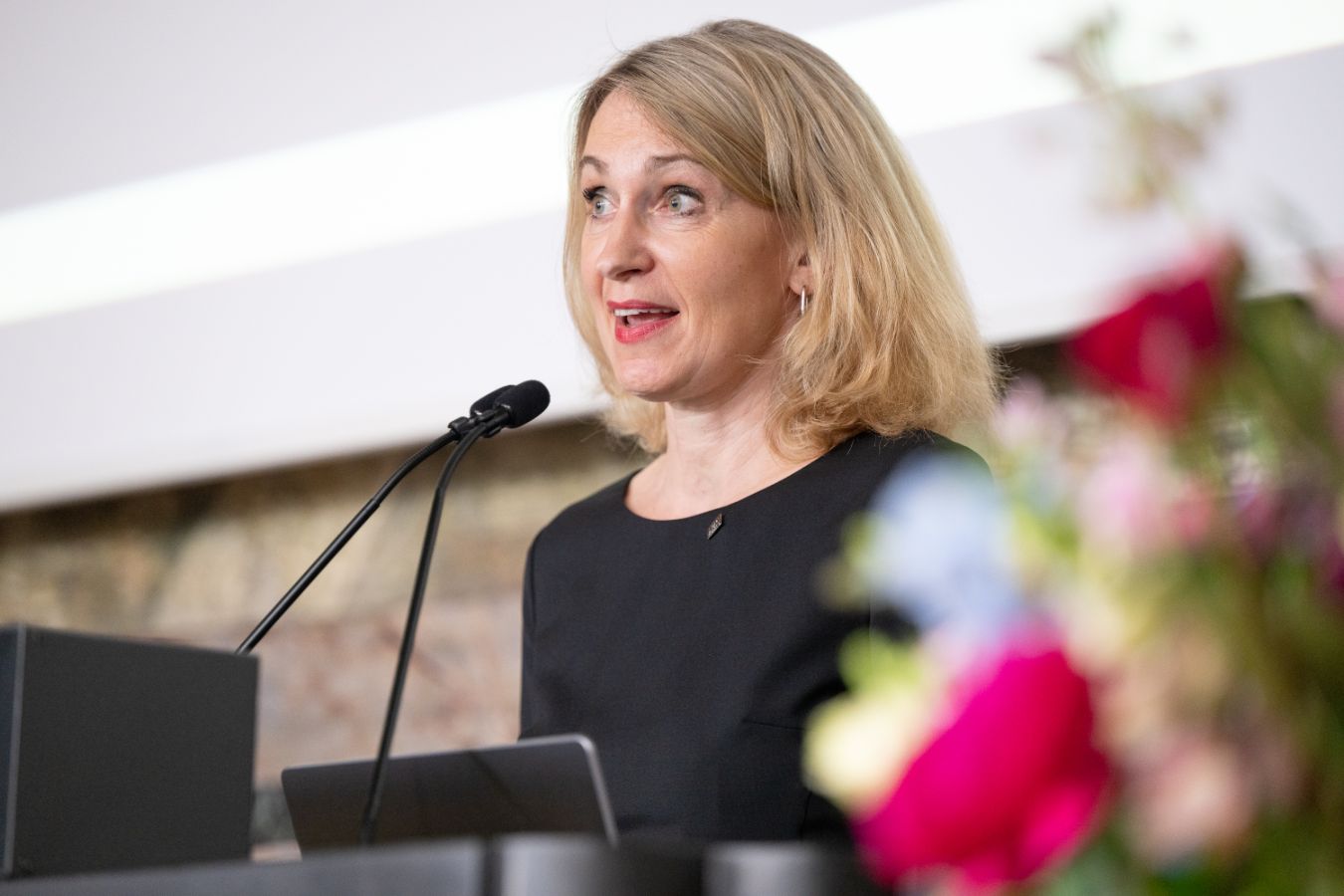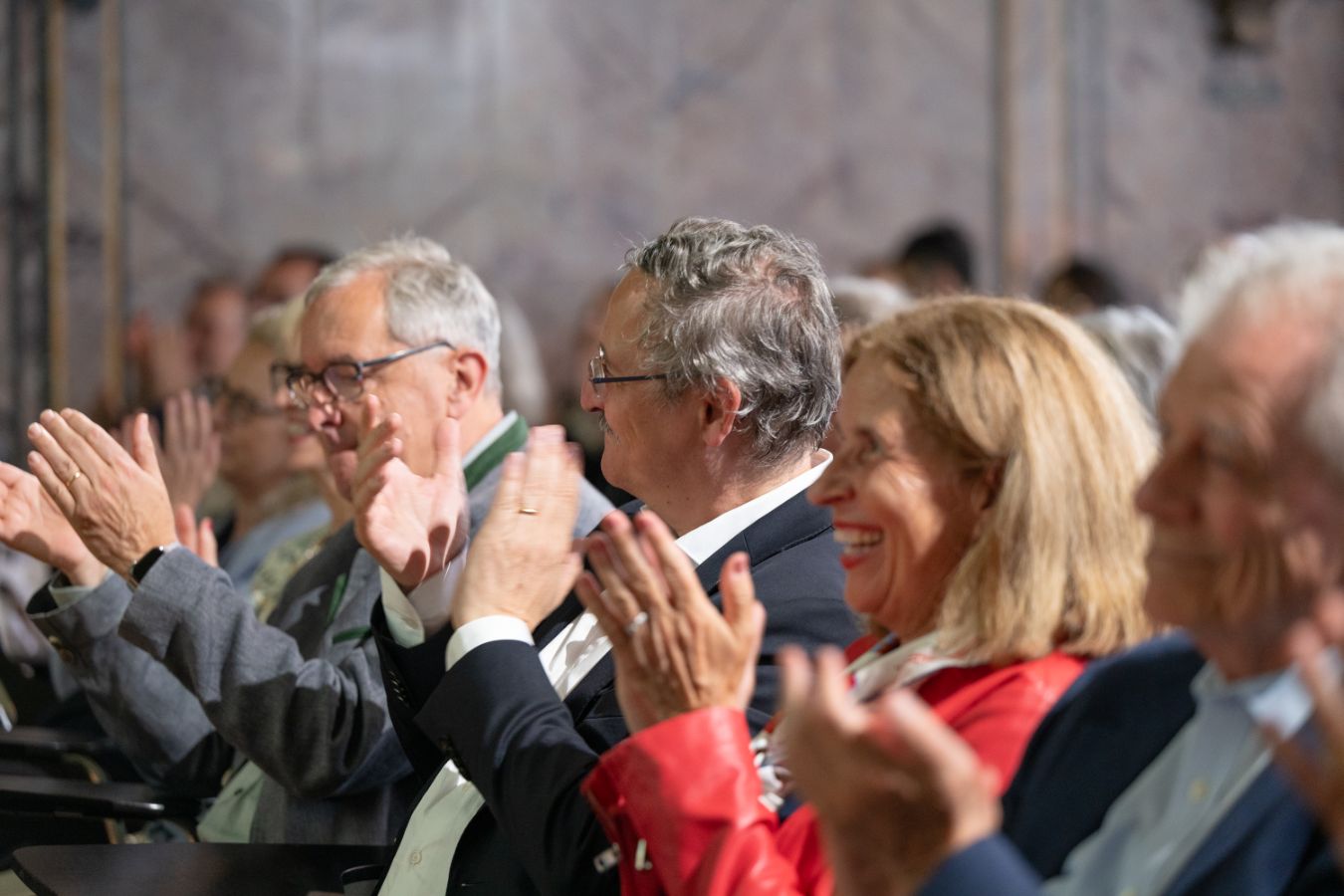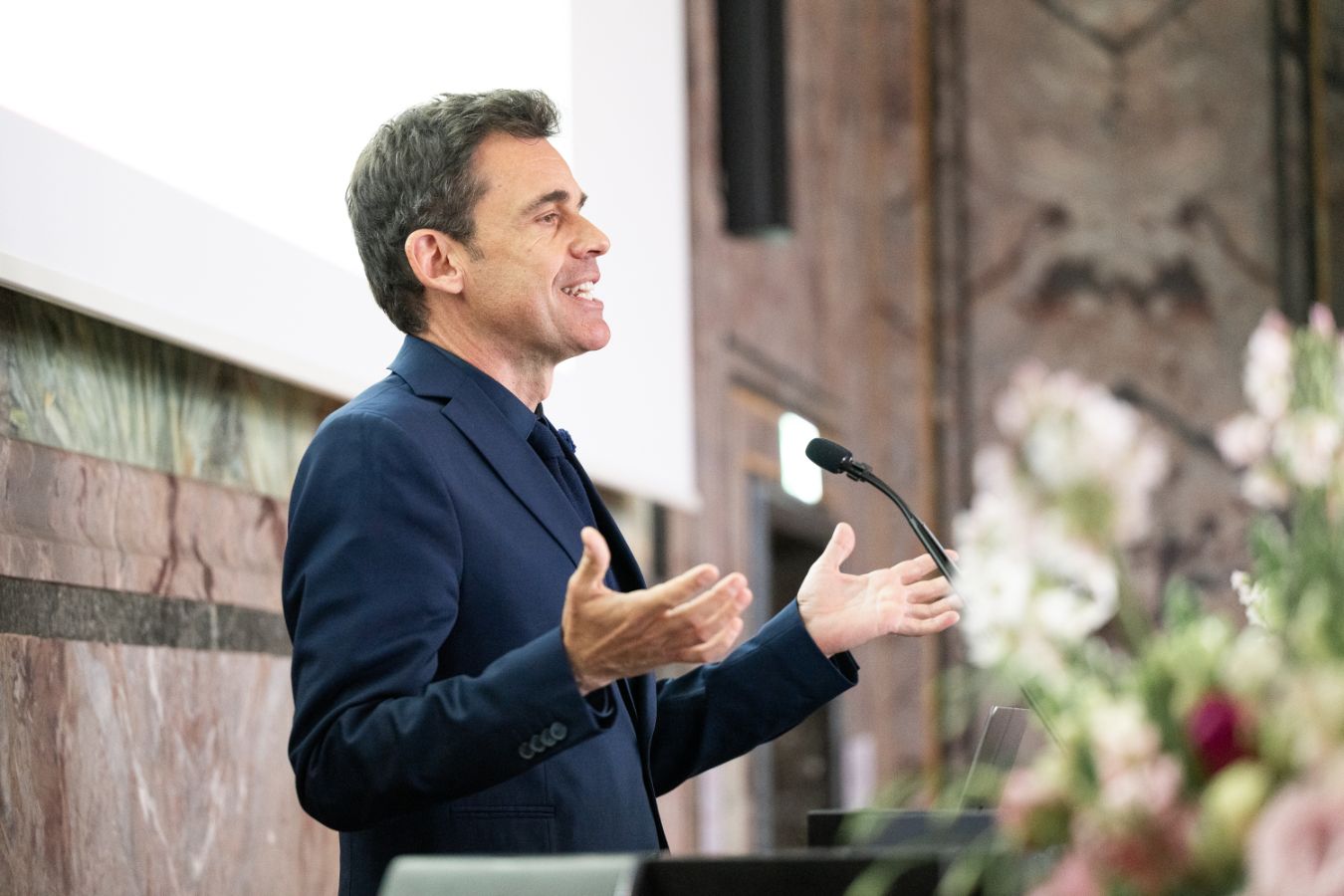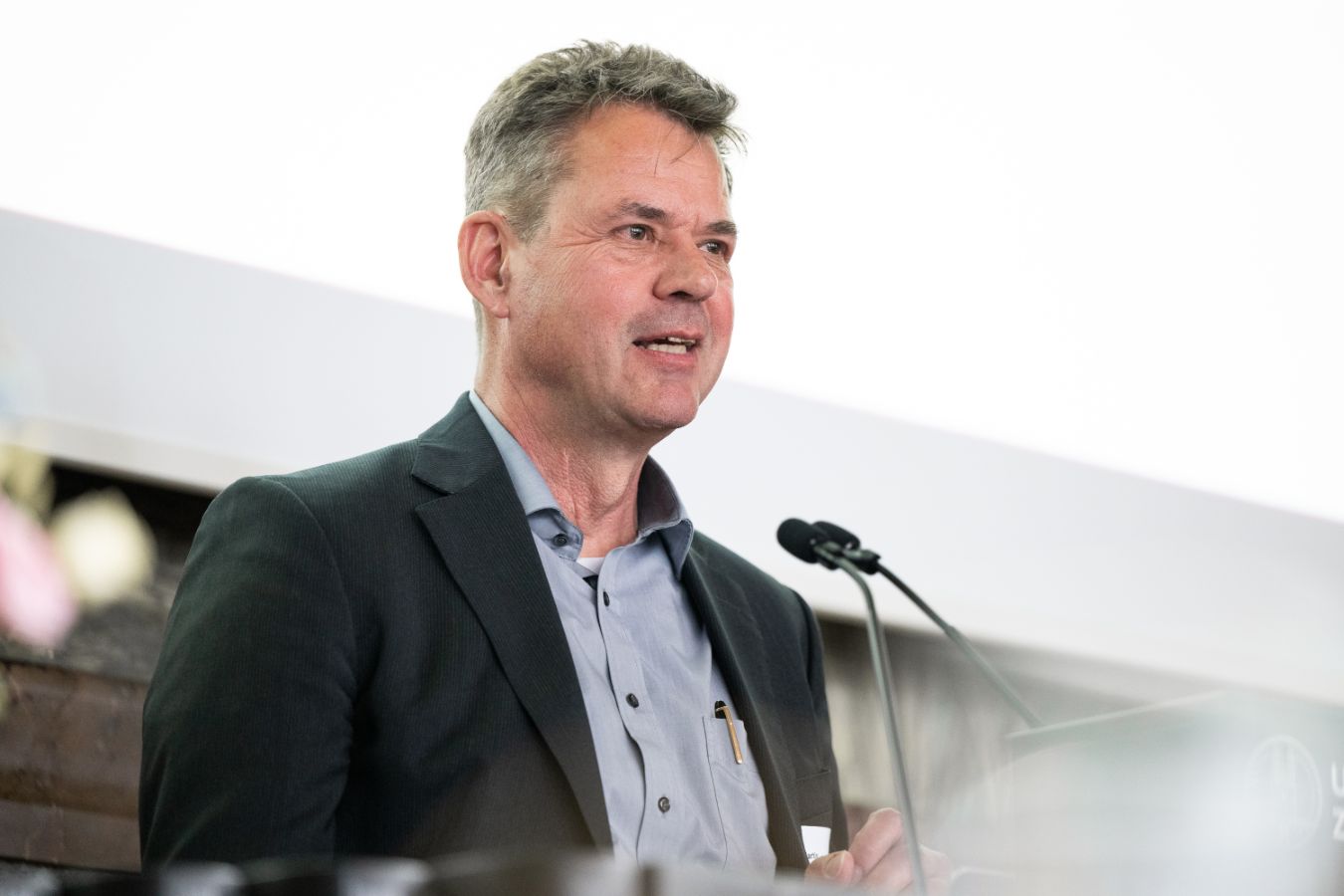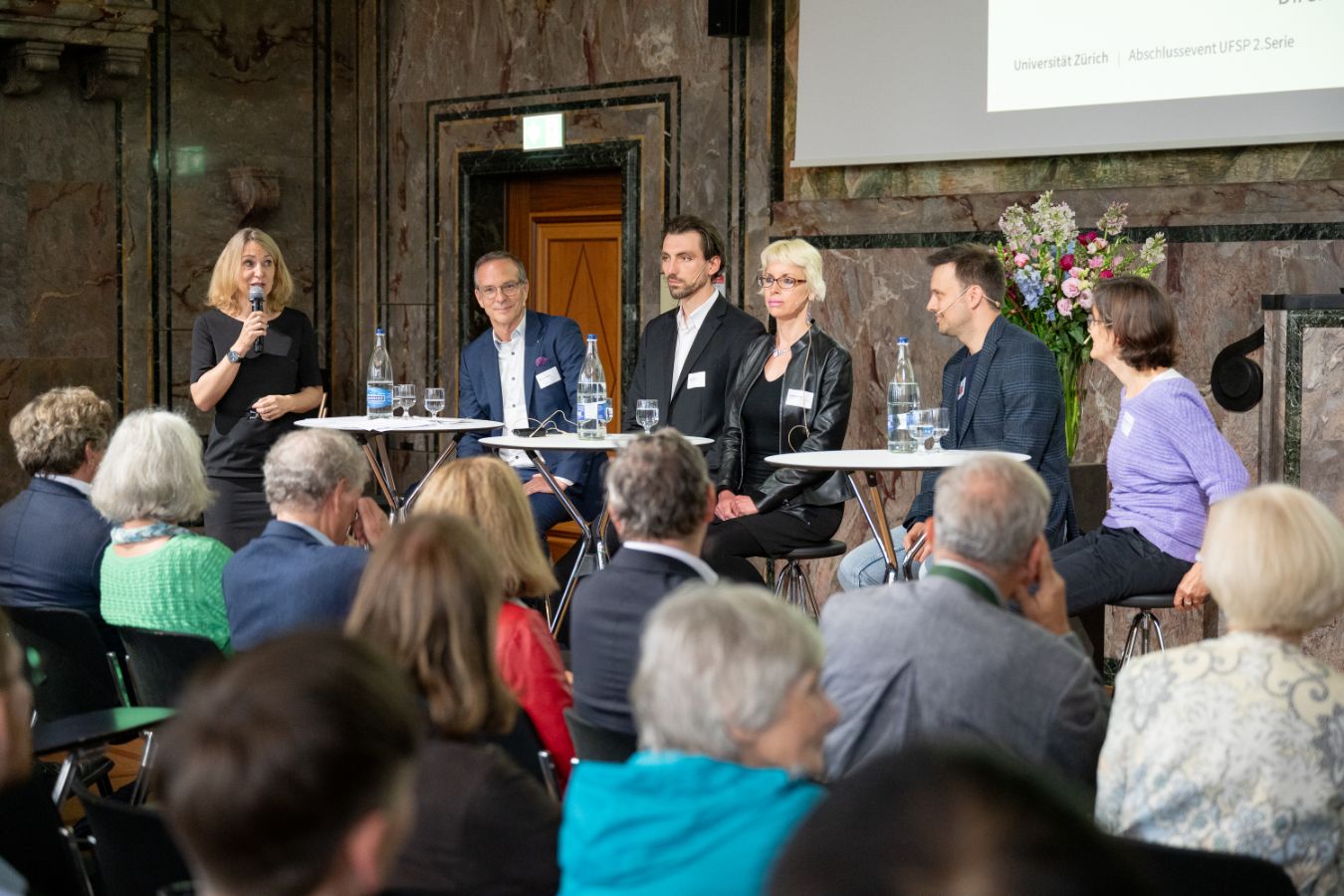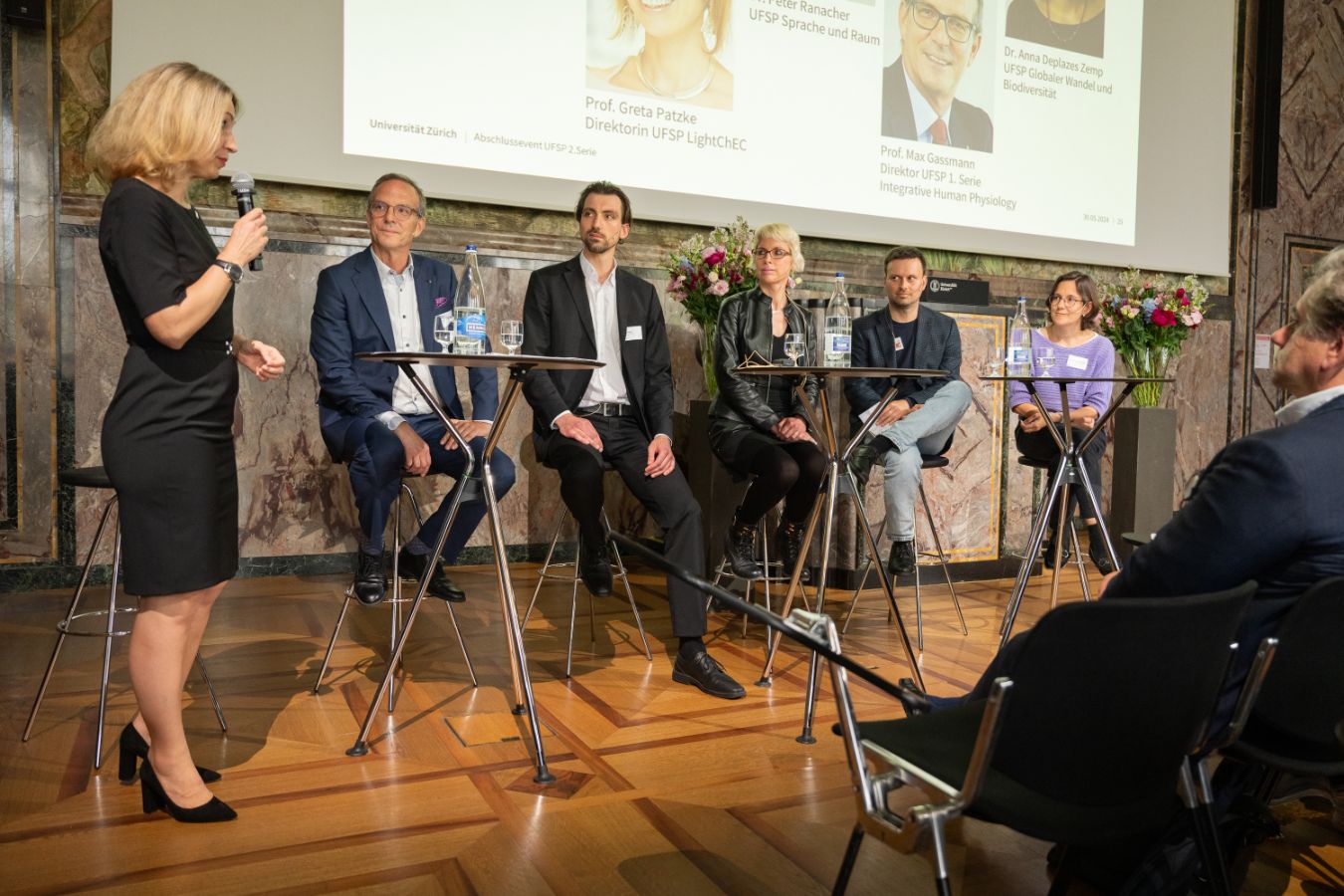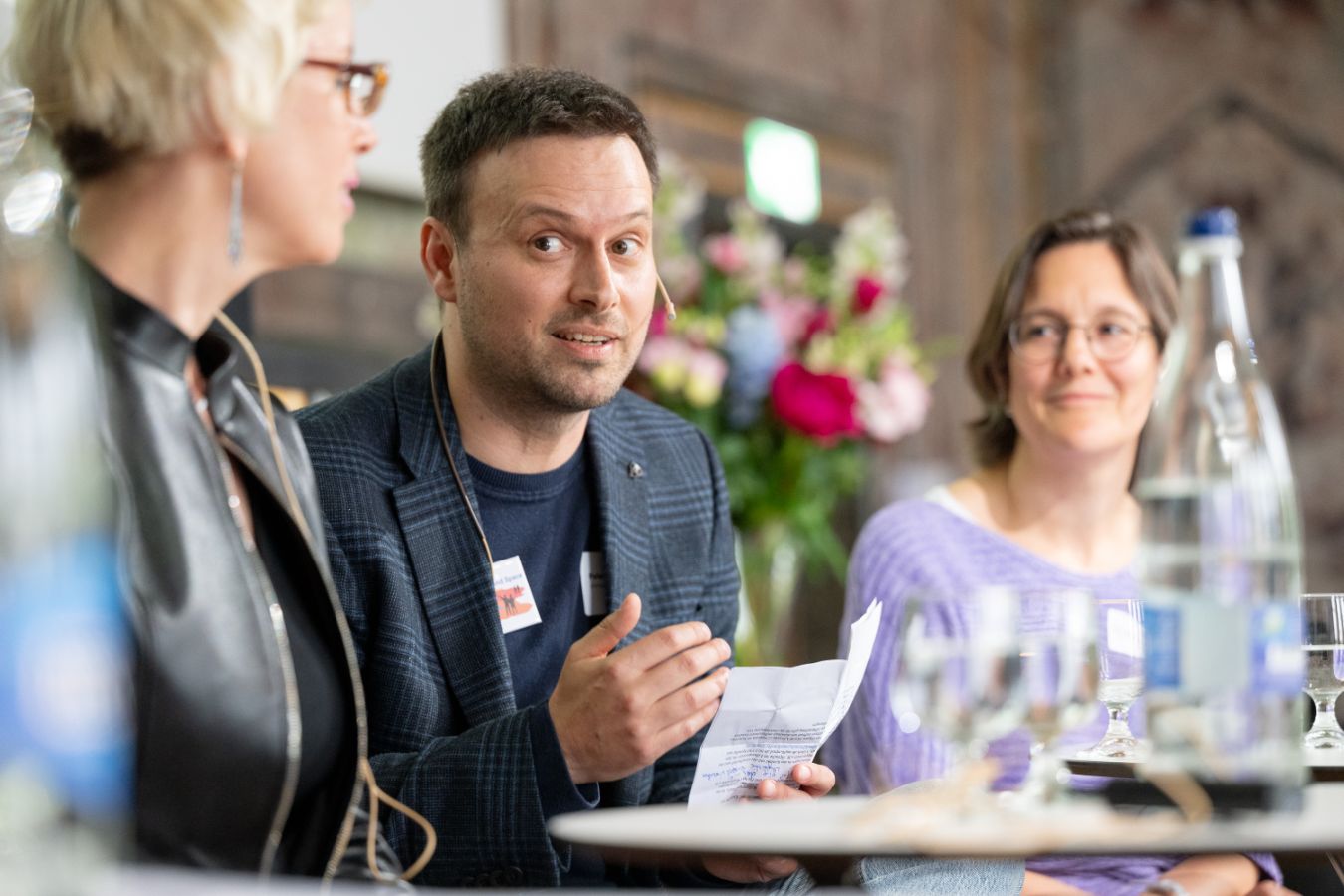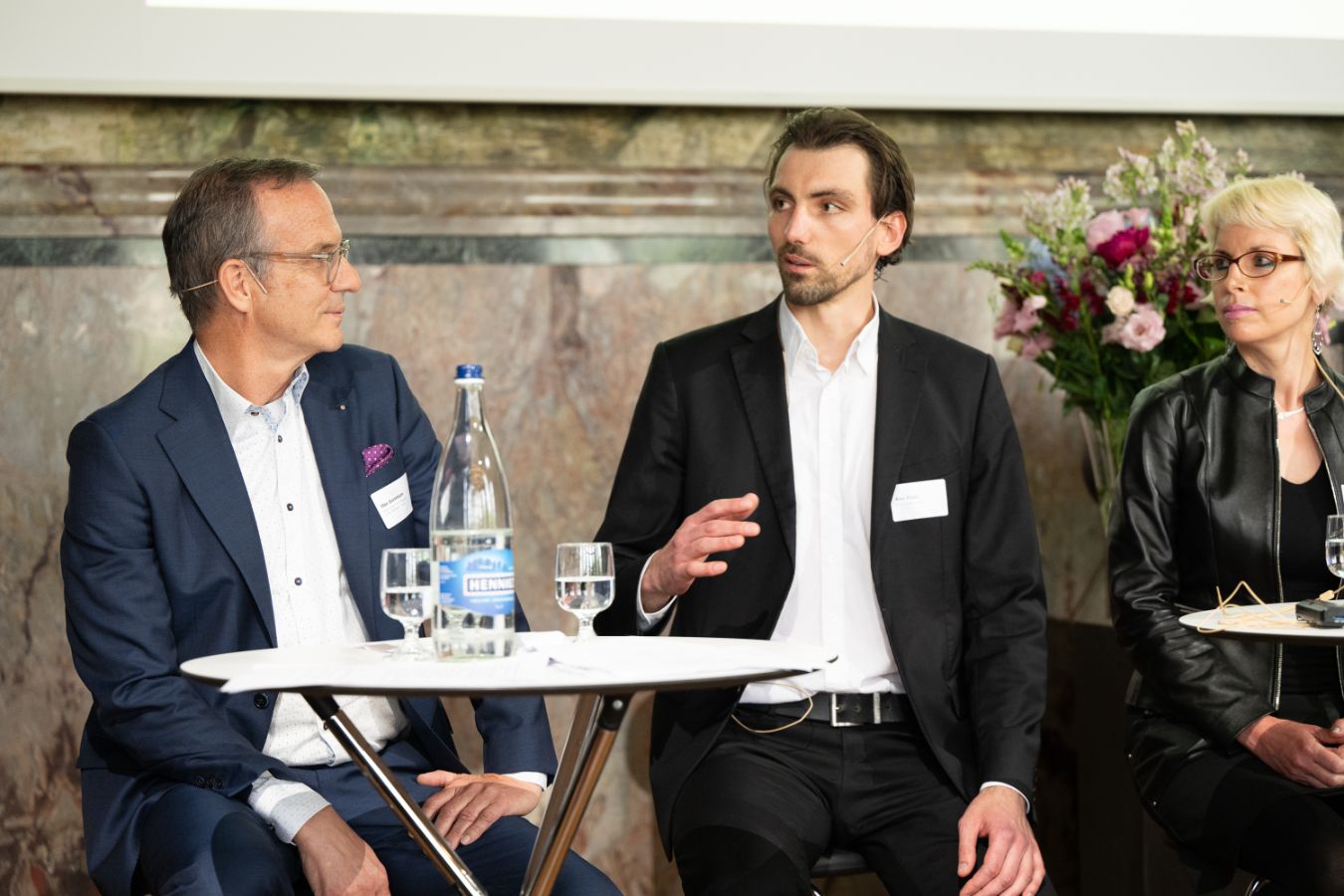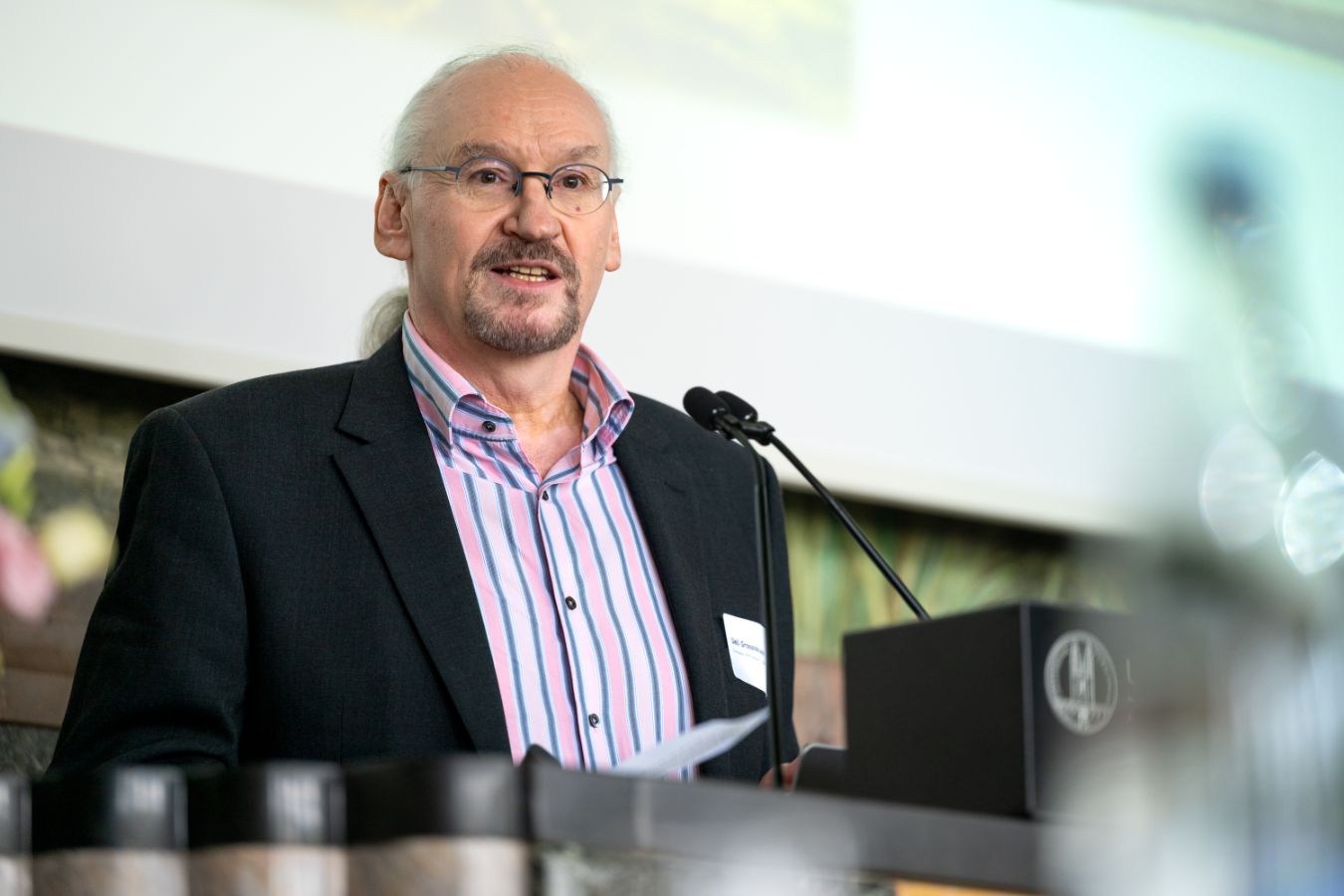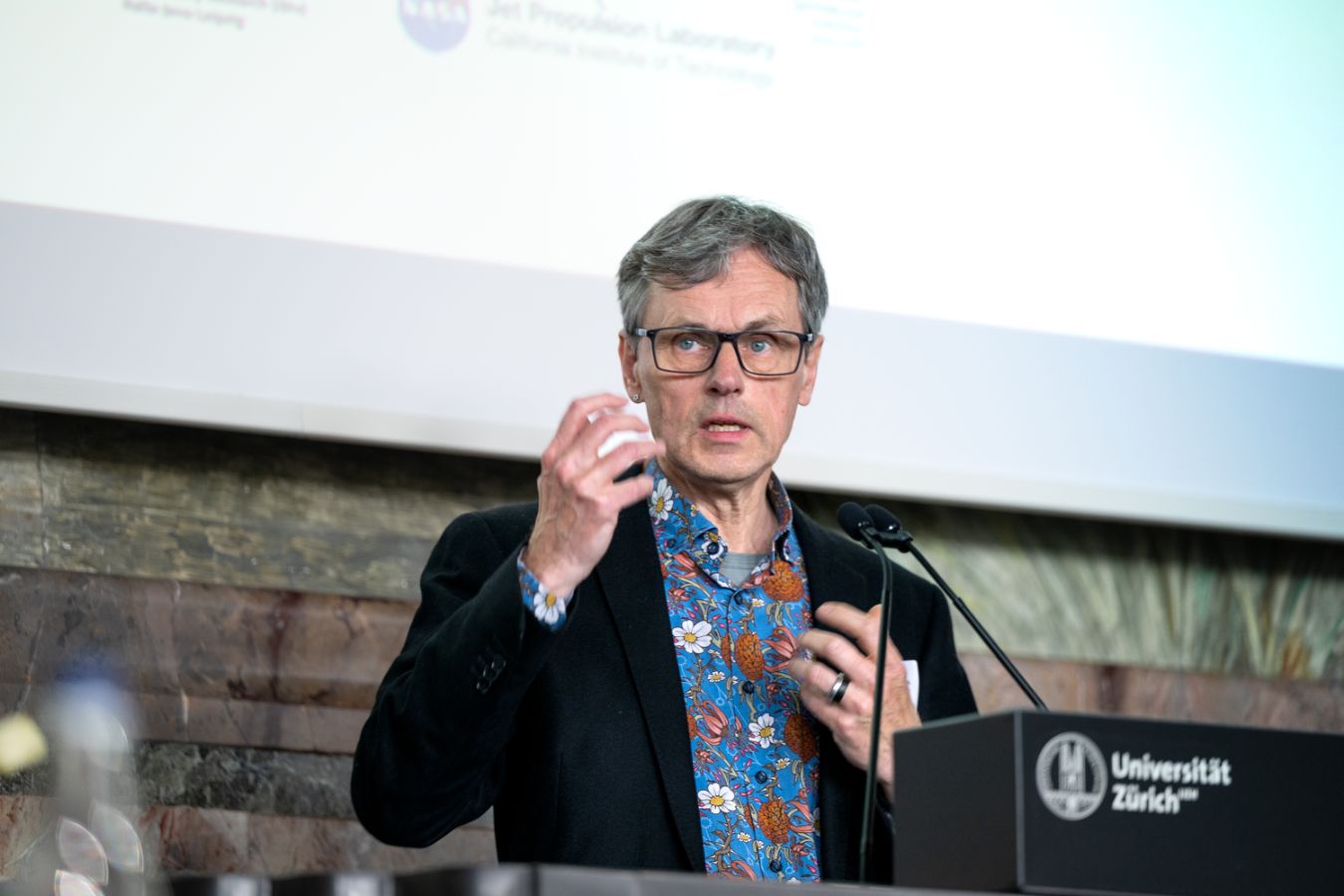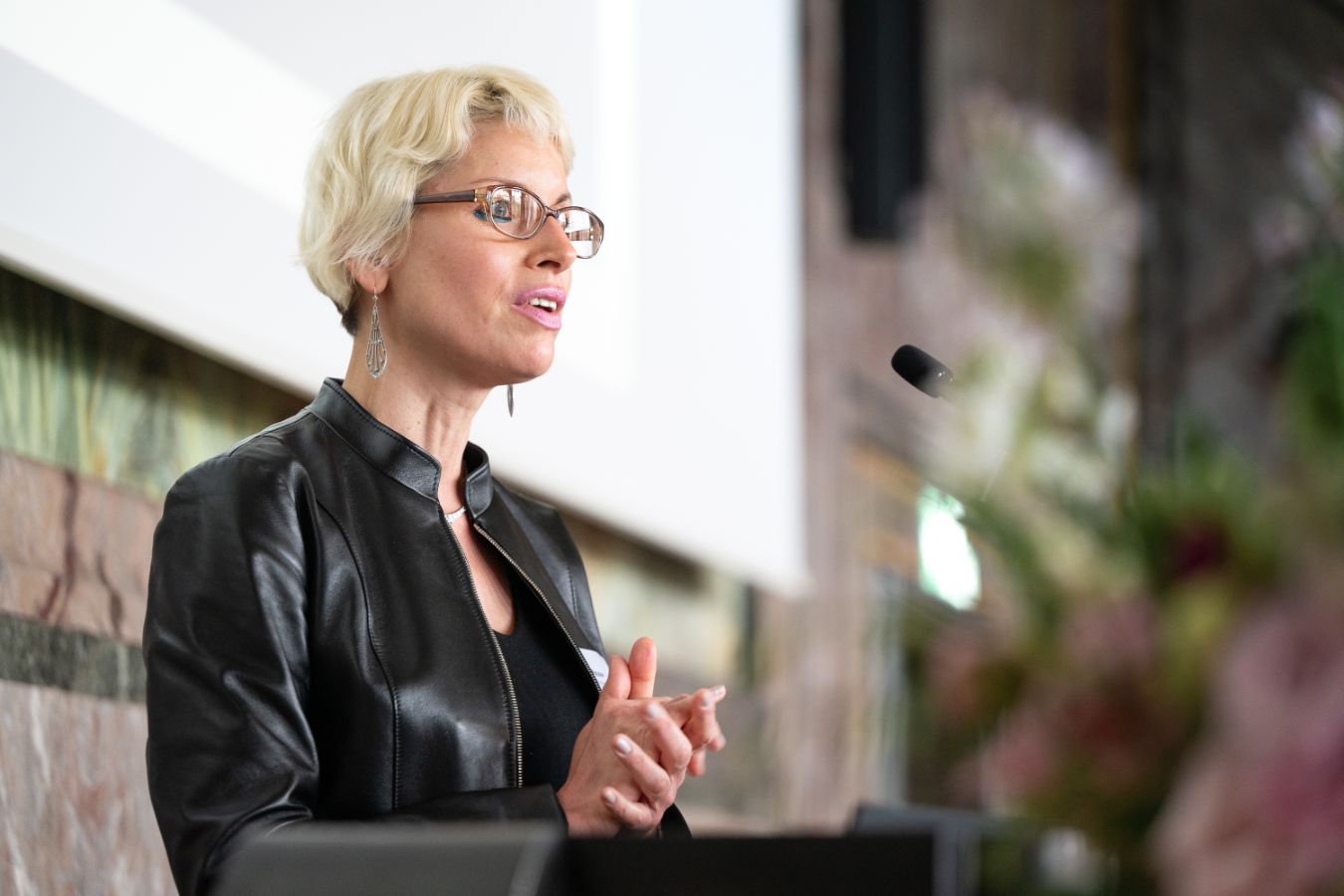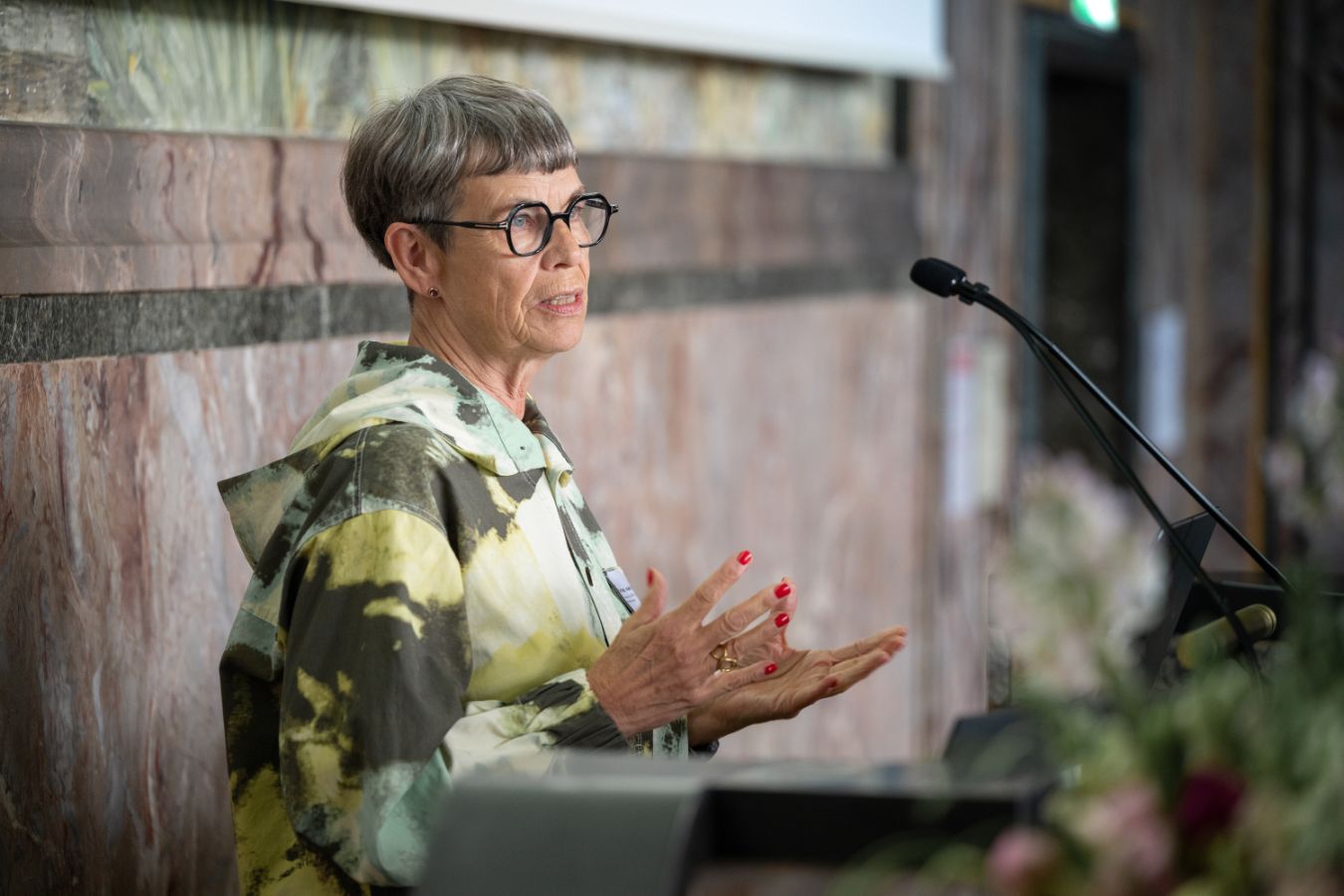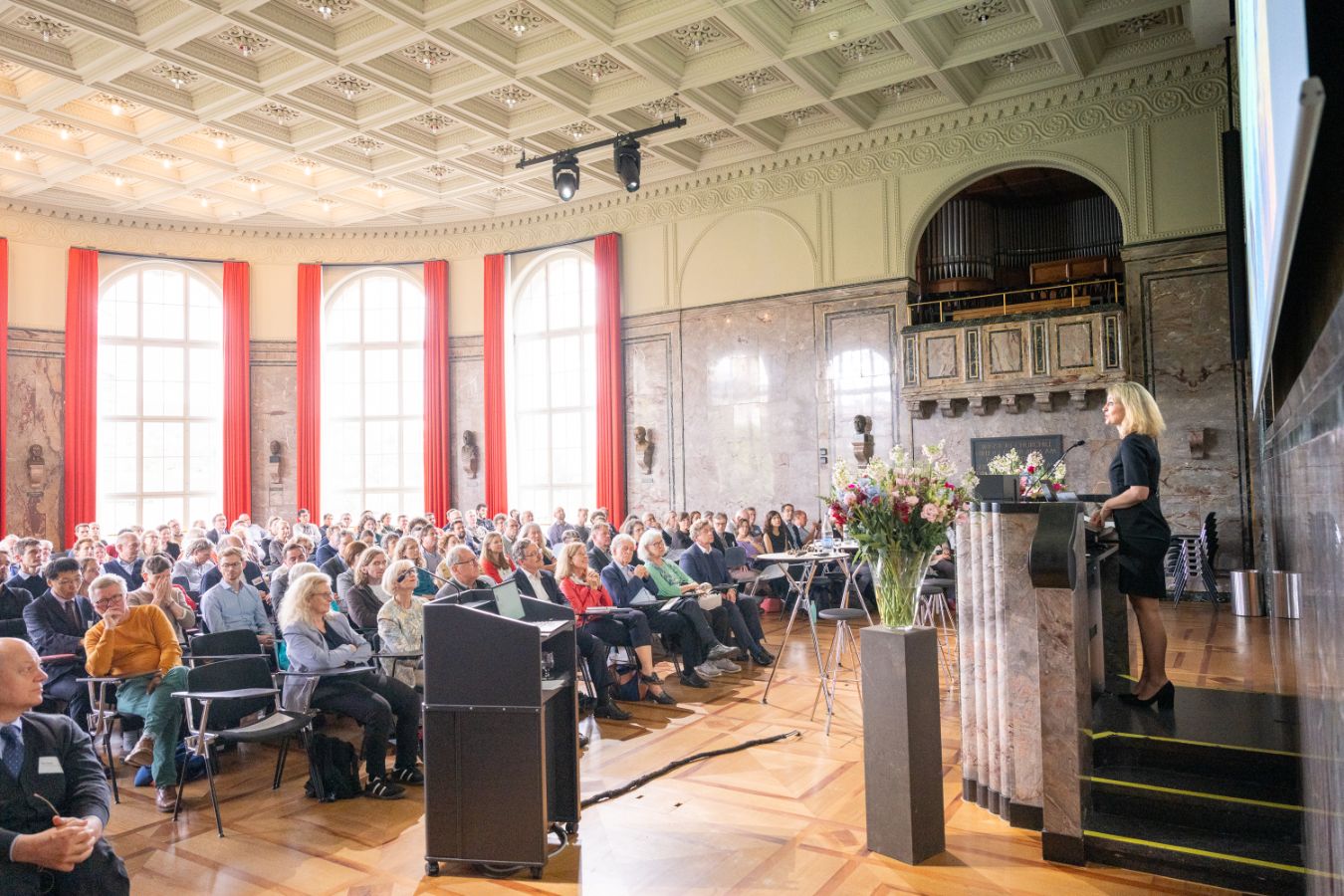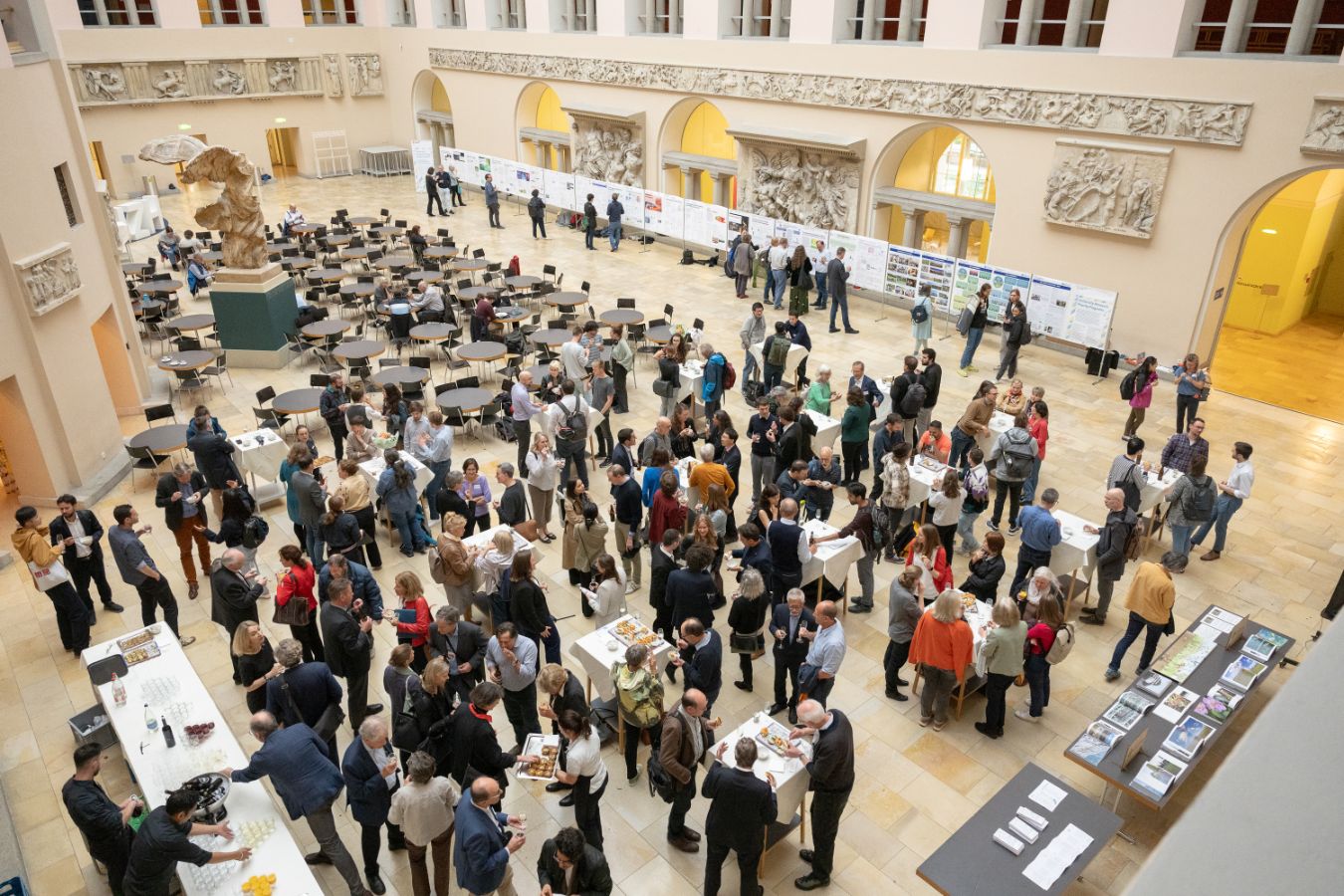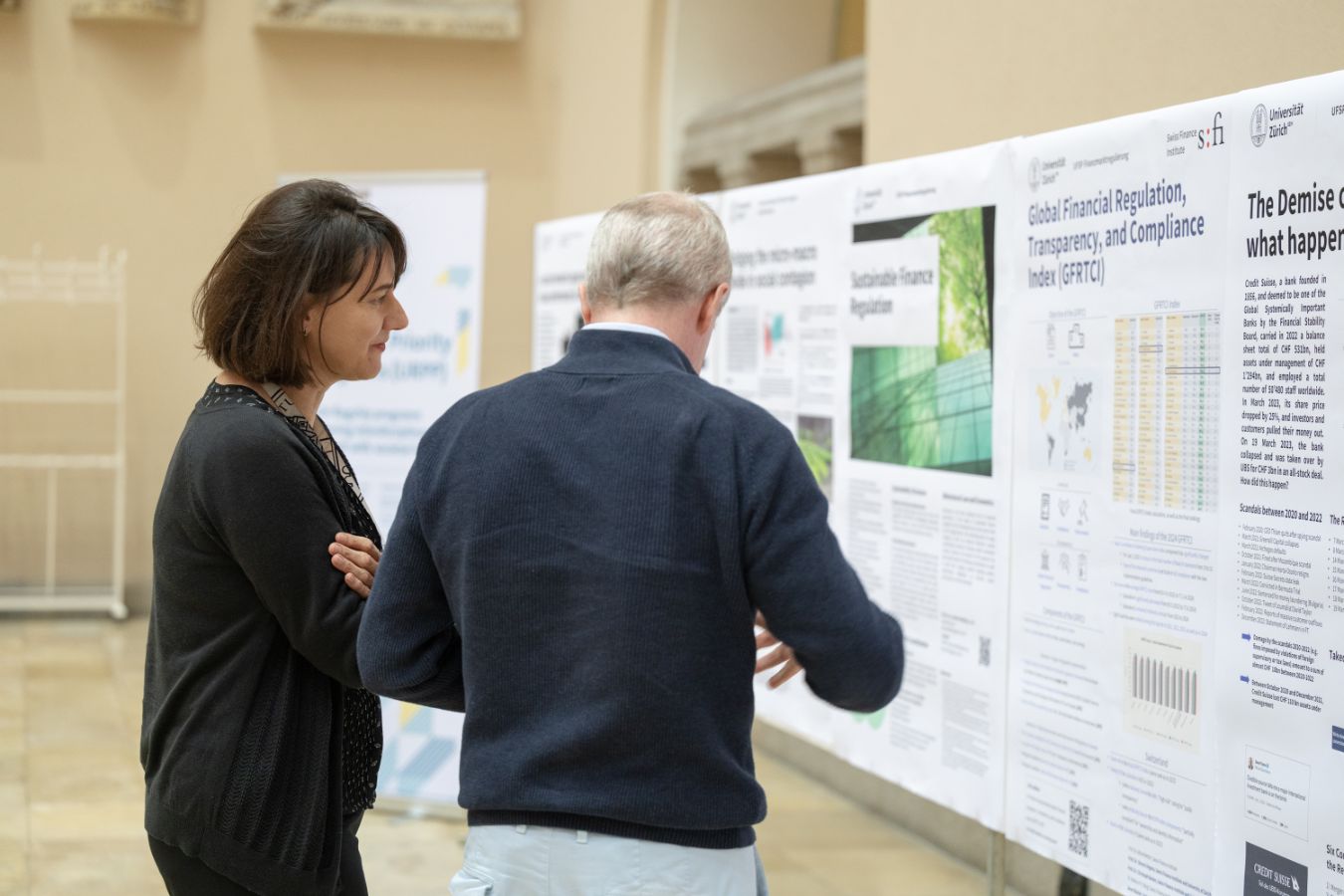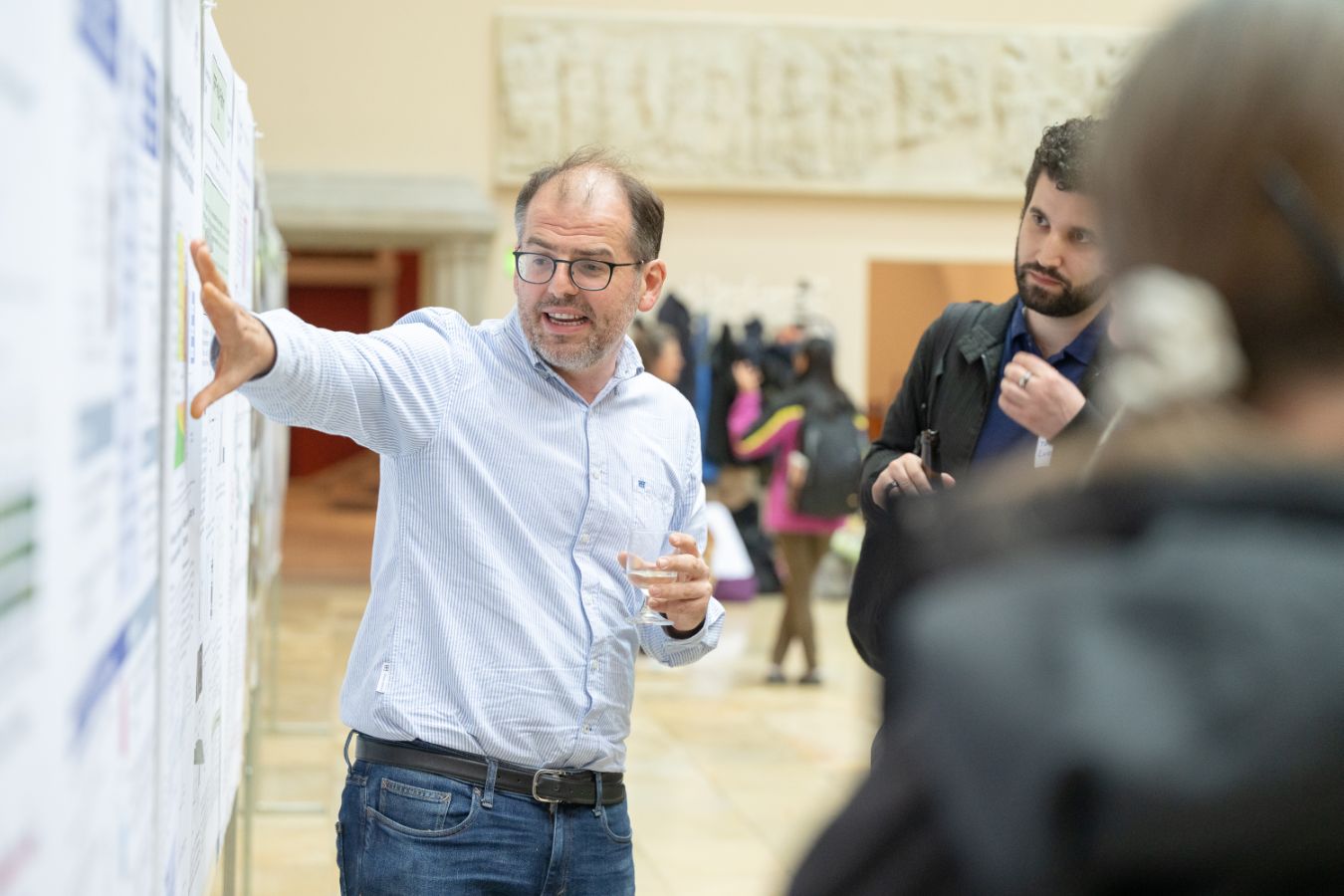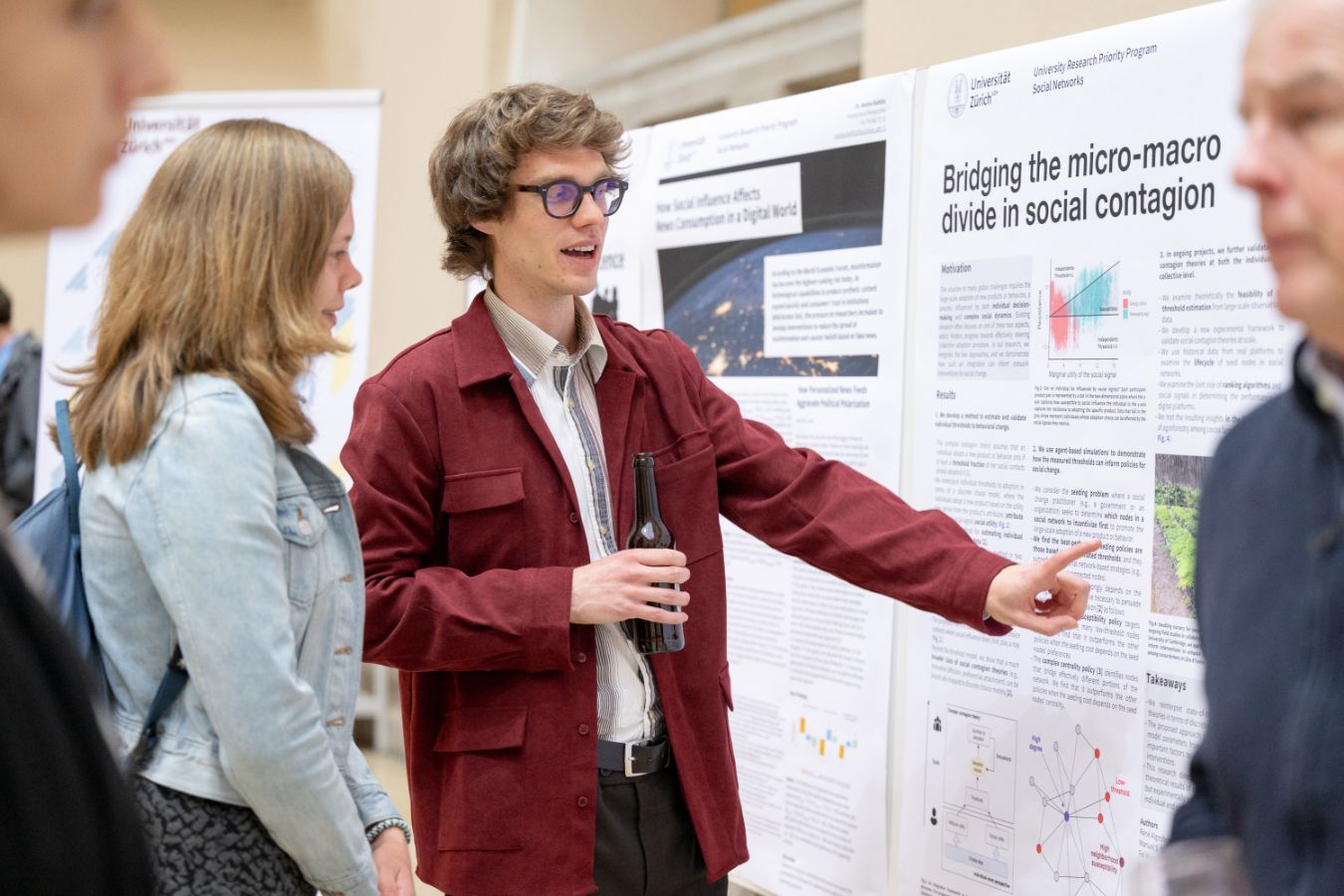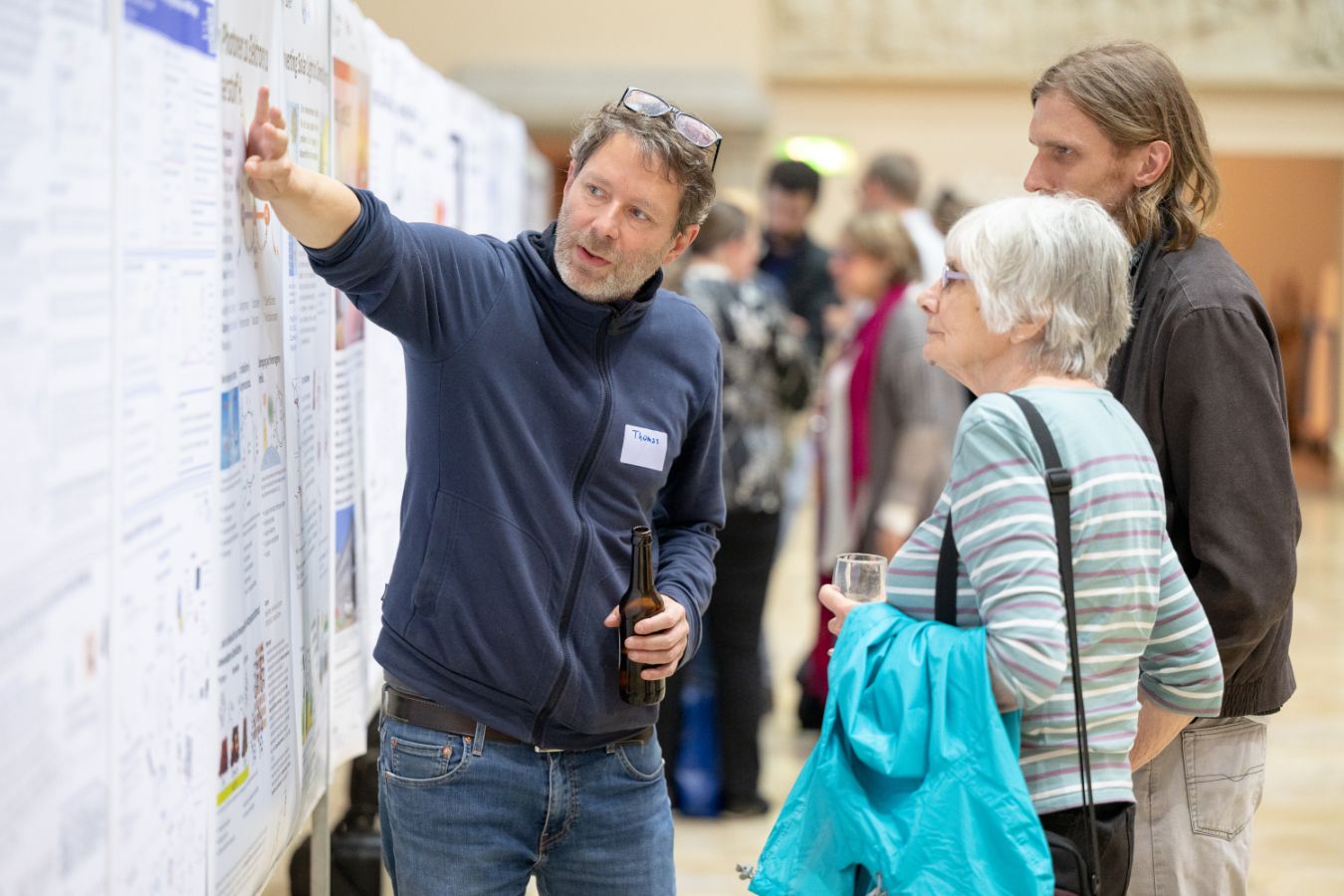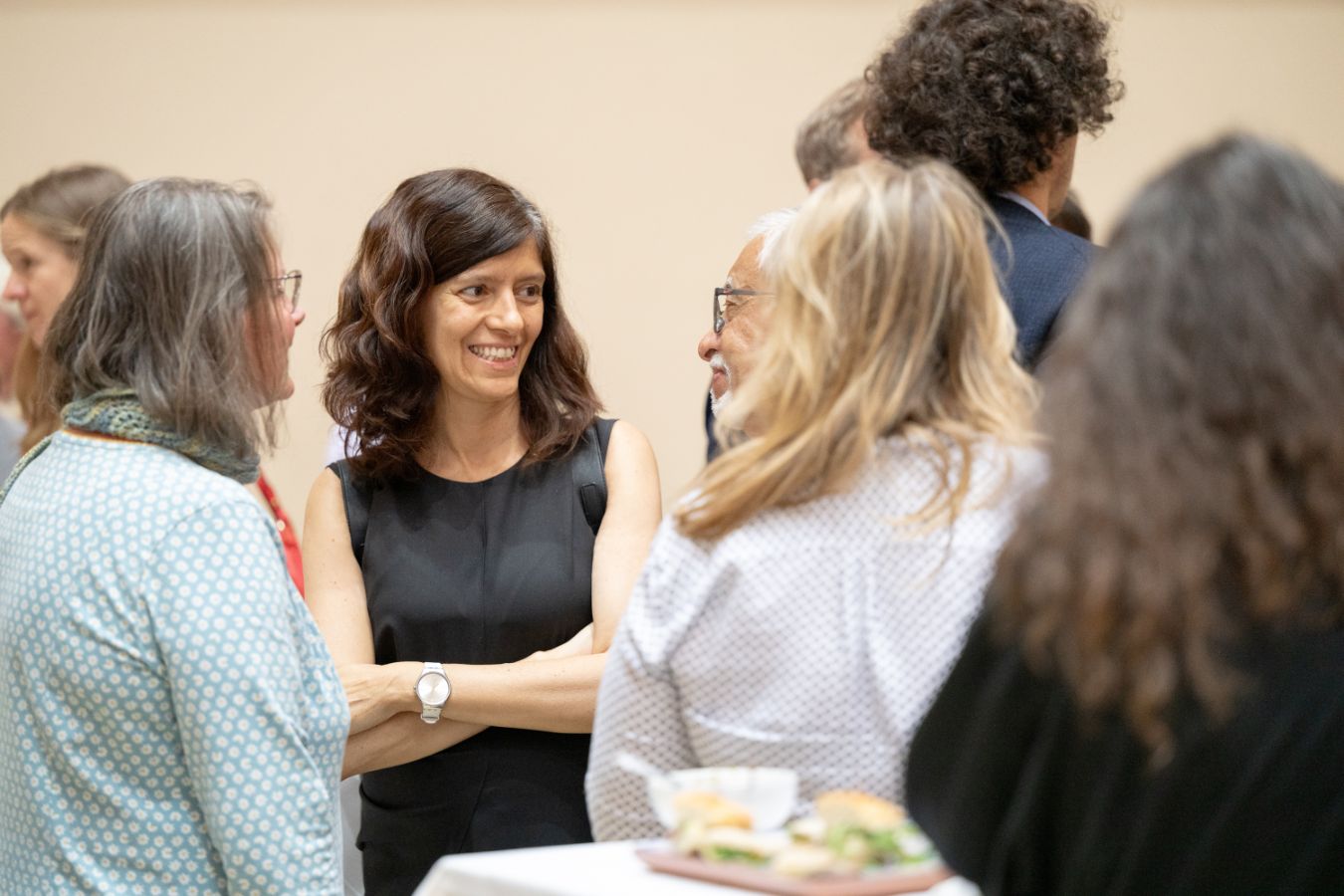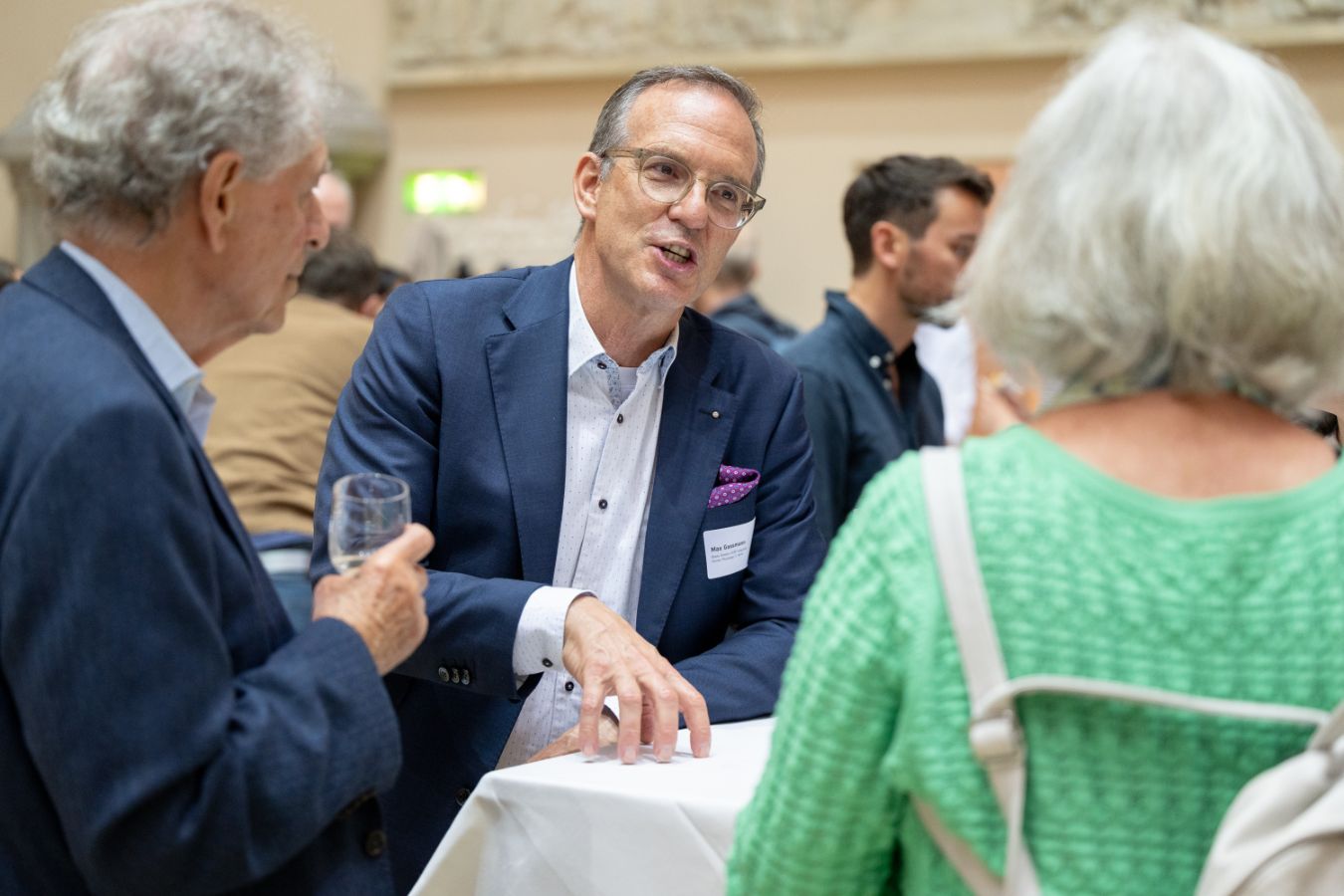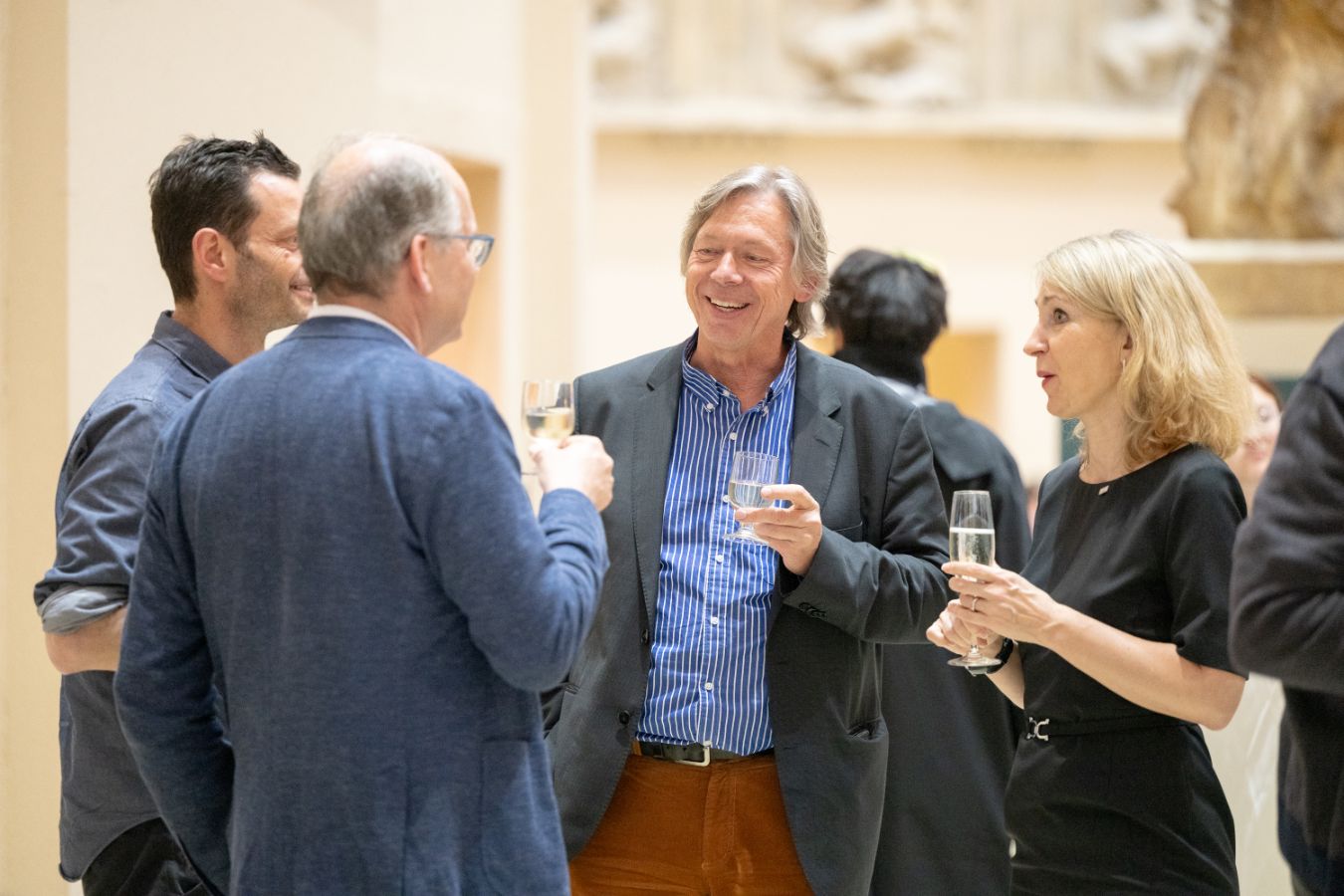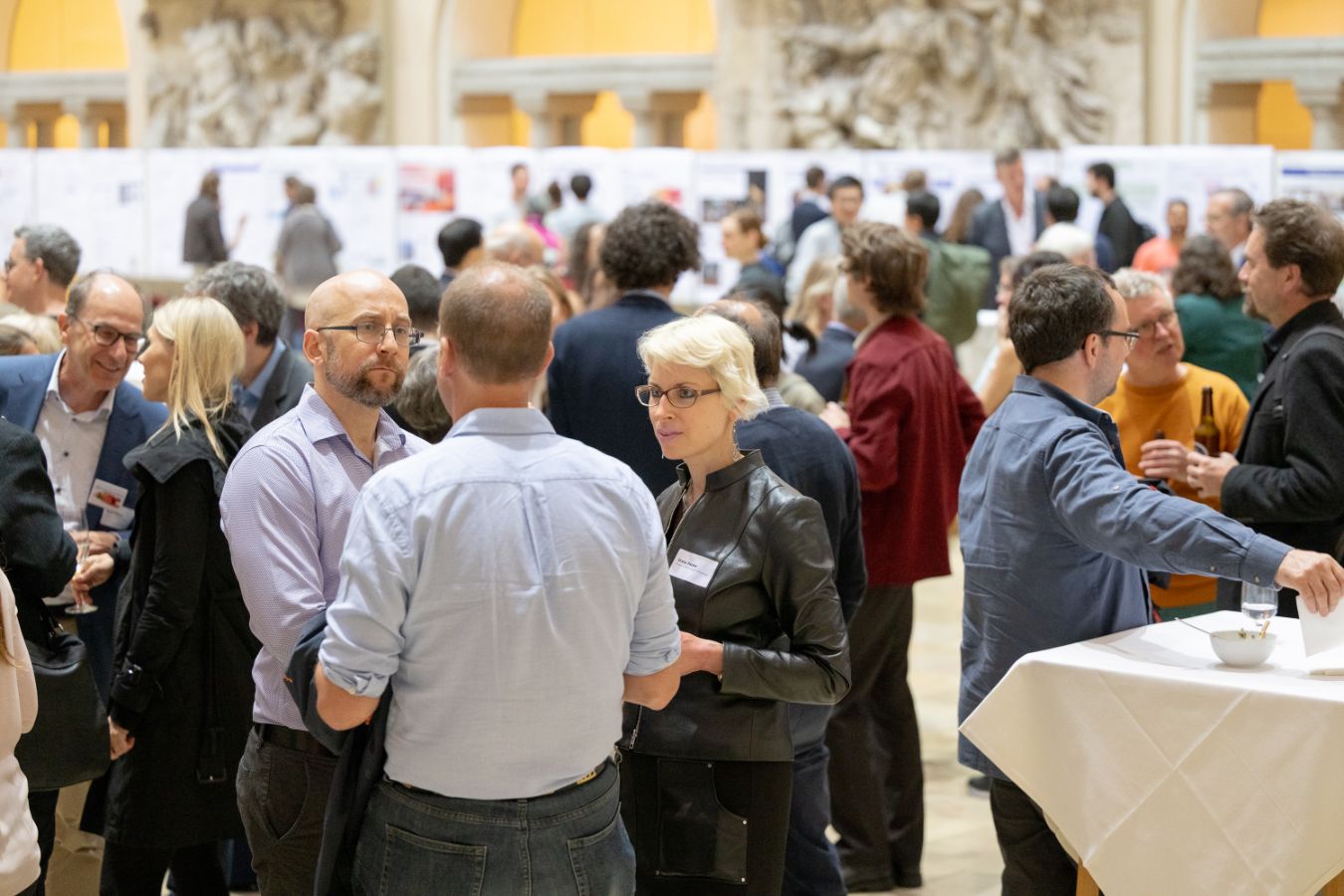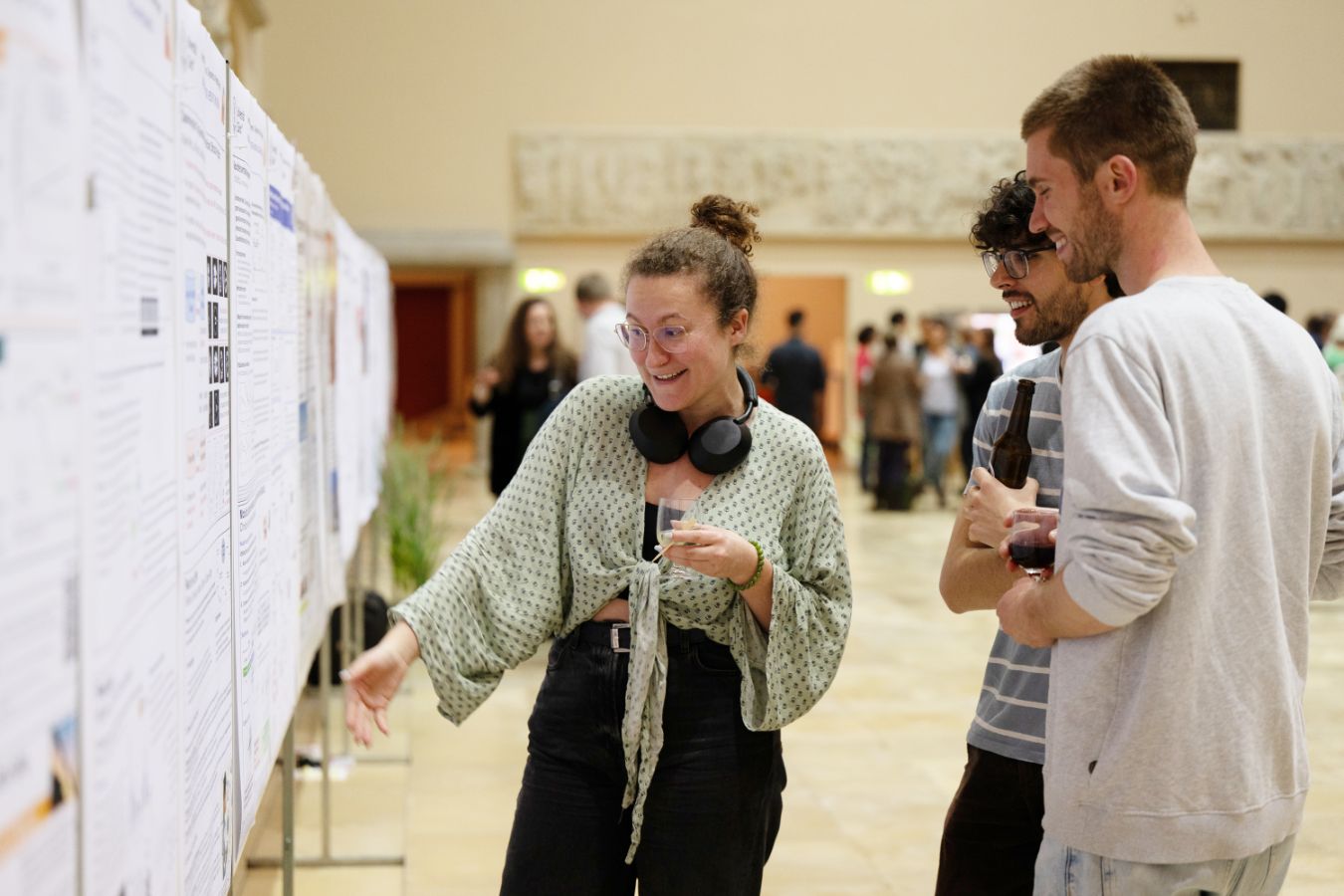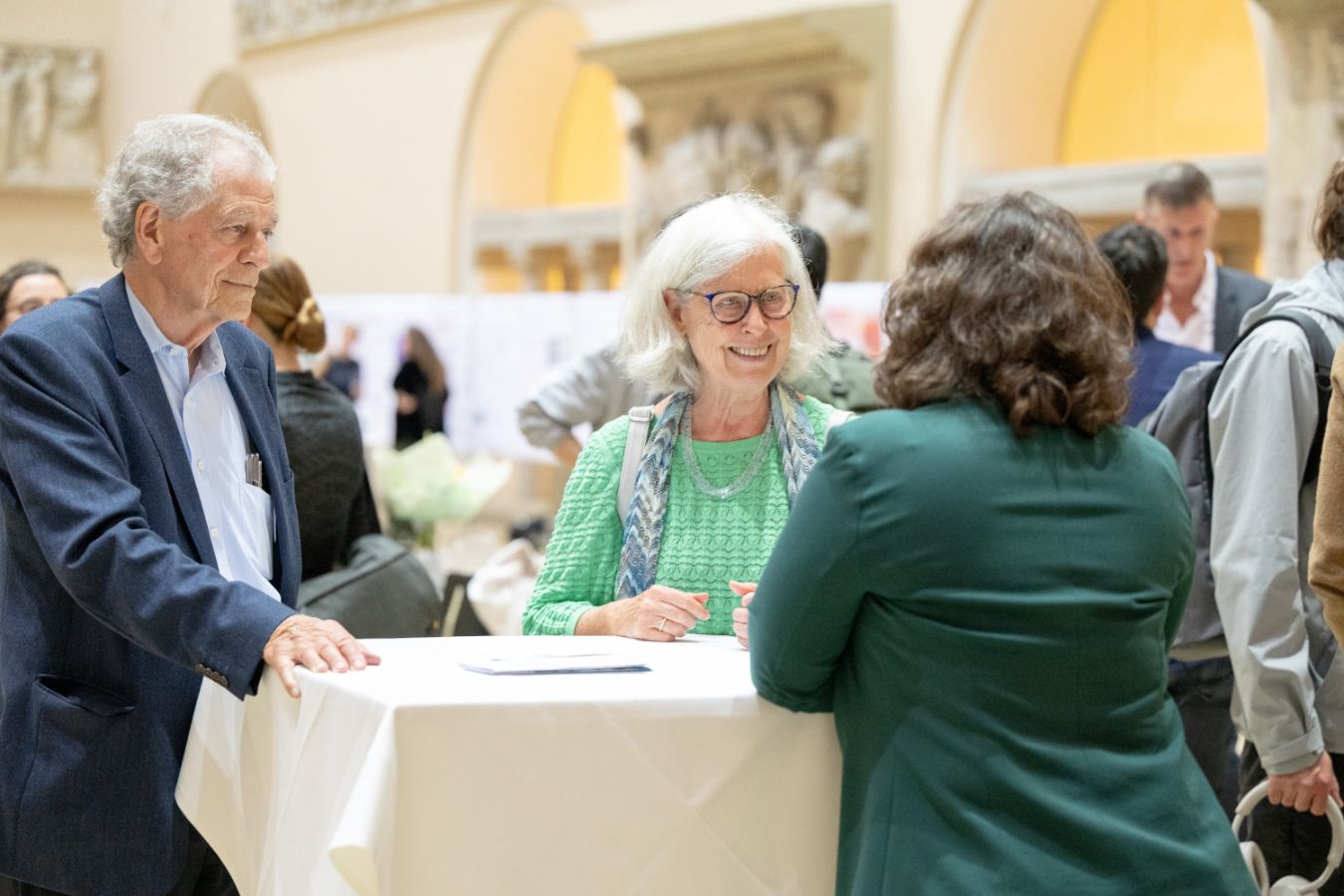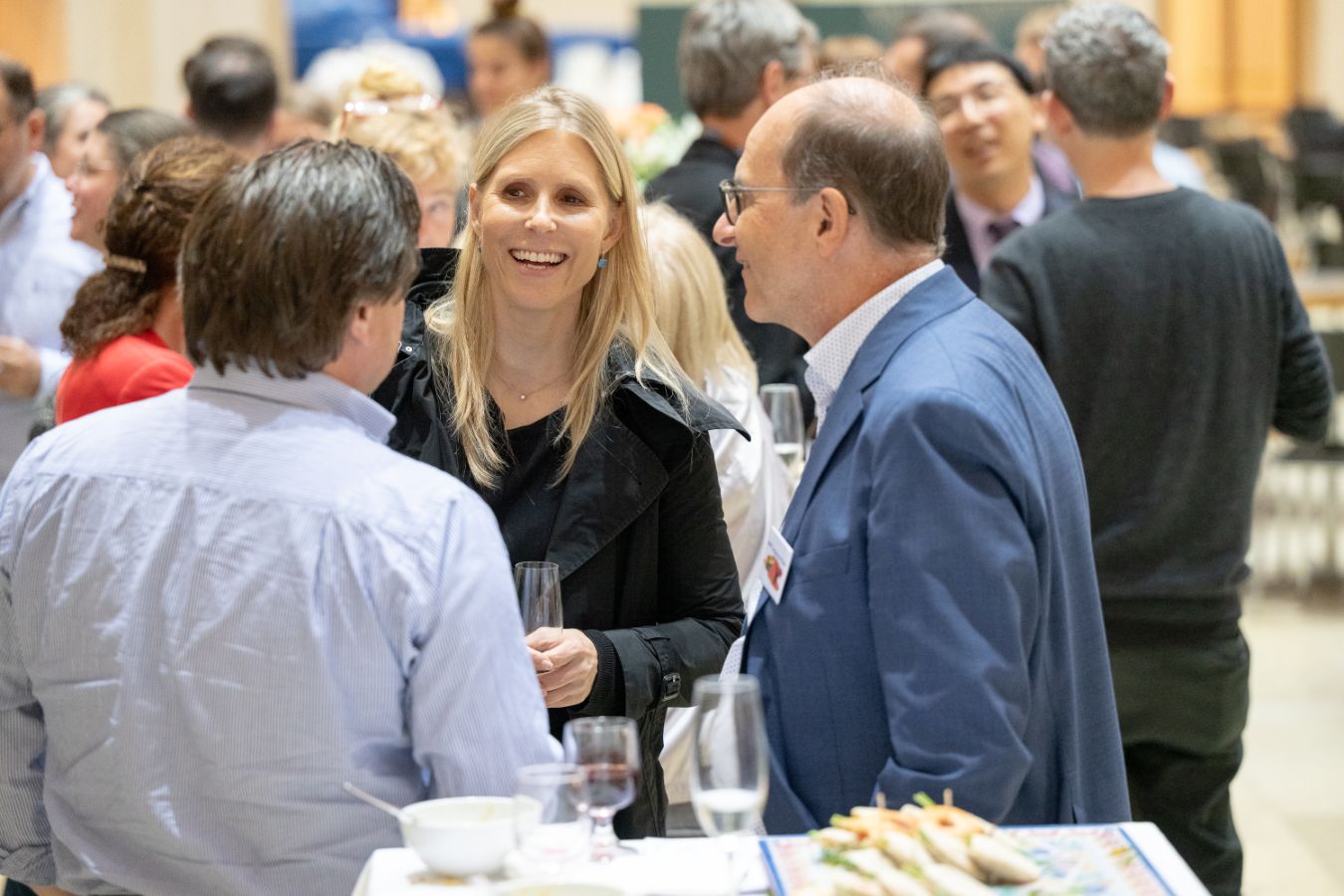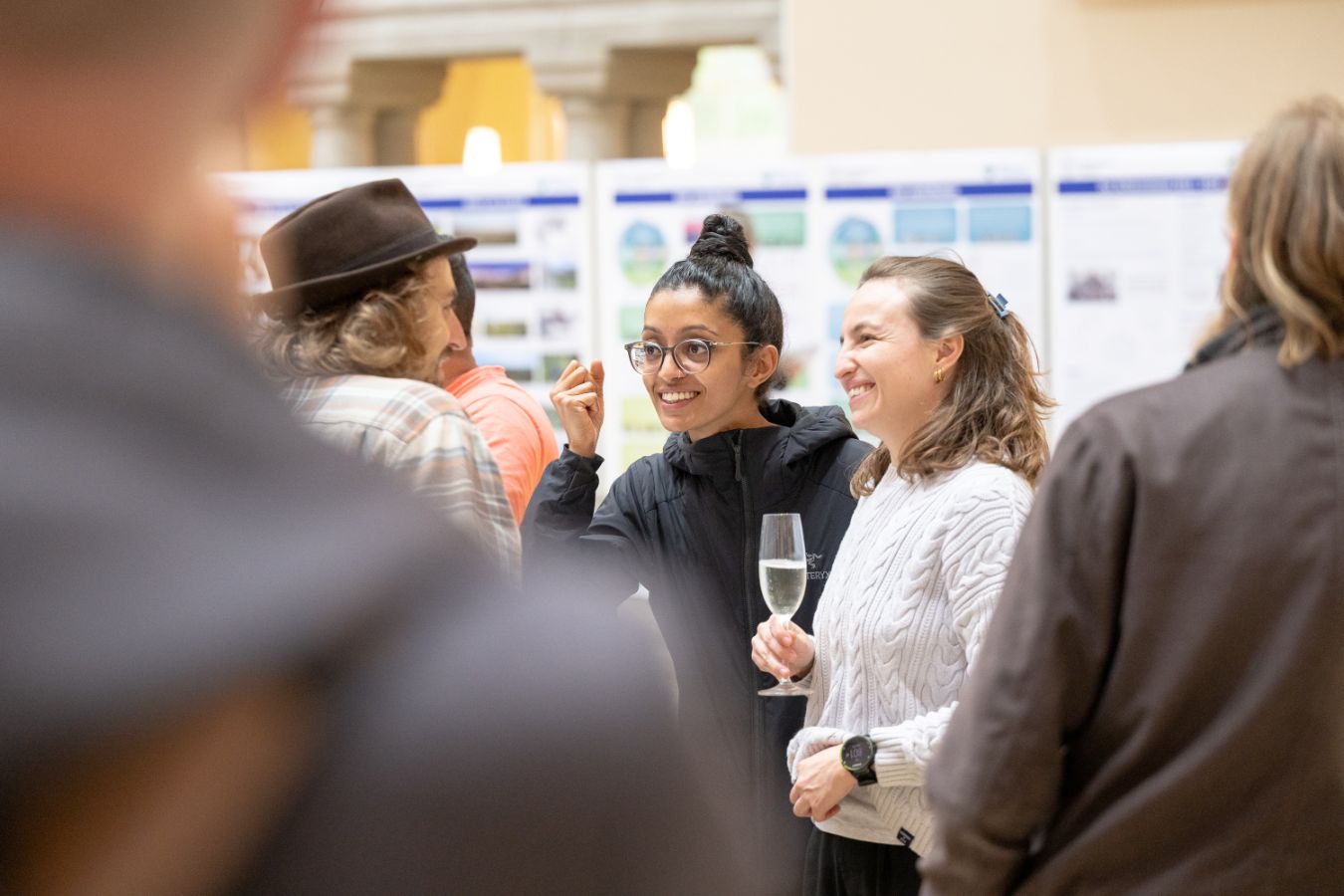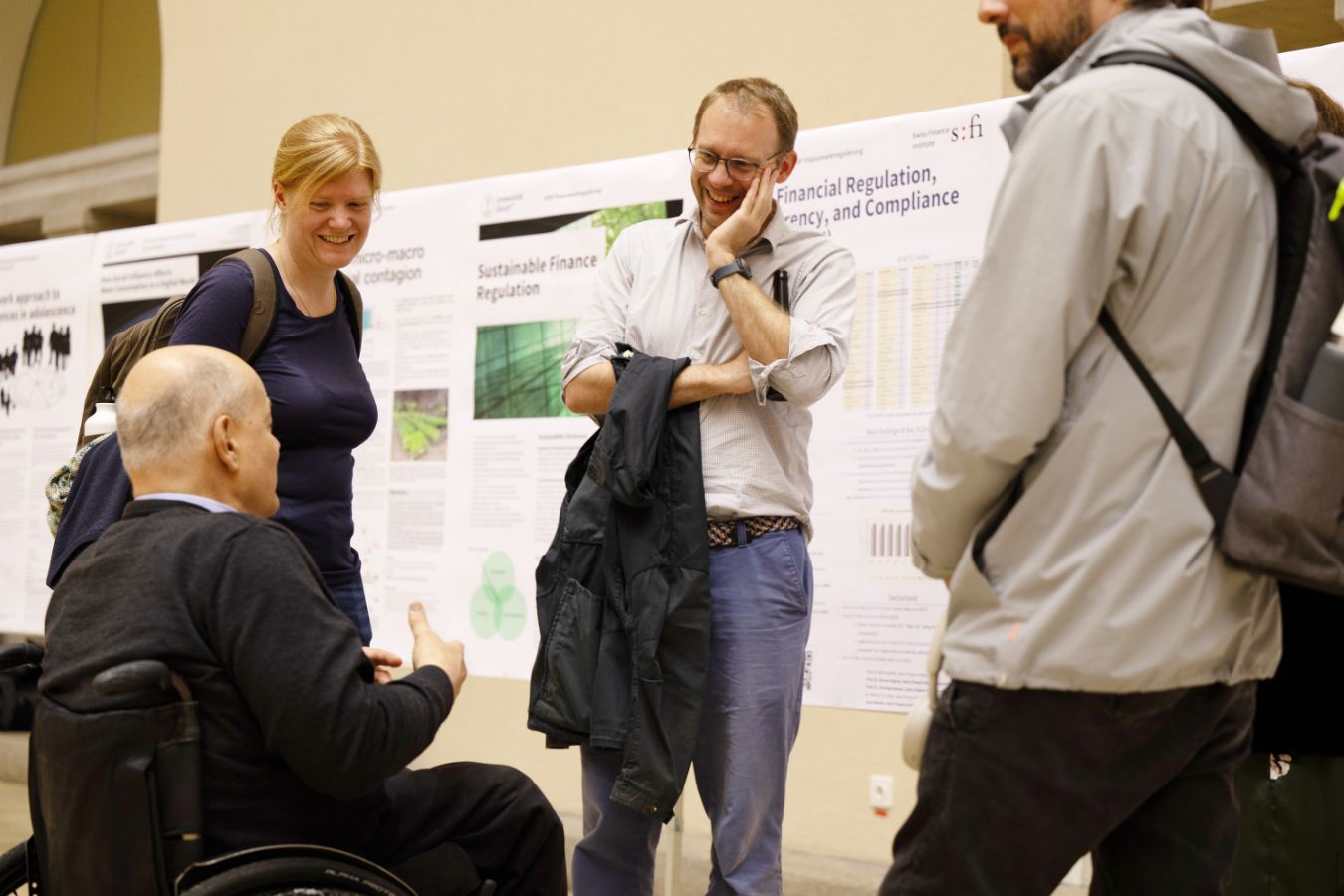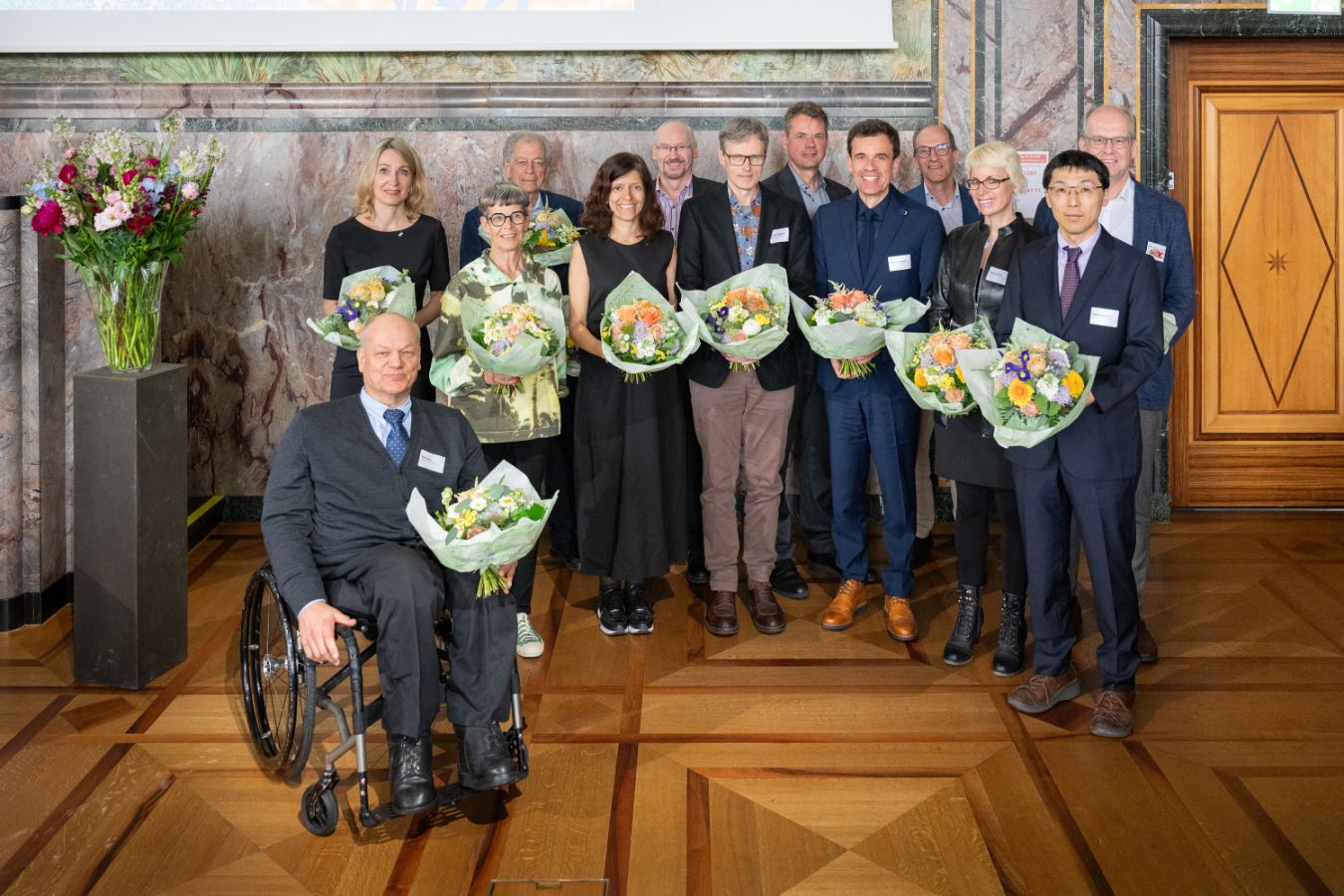Time to Take Stock and Think Ahead
UZH’s University Research Priority Programs tackle pressing societal problems. They enable researchers to apply their expertise in selected research fields and help them develop long-term solutions. The programs of the second series have now concluded, with an event marking the occasion last week.
The closing event for the 2nd series of the URPP in the auditorium in the main building of UZH. From left to right, back row: Elisabeth Stark, Alex Borbély, Ueli Grossniklaus, Mike Martin, Robert Weibel, Johannes Kabatek. Front row: Maries Van den Broek, Maria J. Santos, Norman Backhaus, René Algesheimer, Greta Patzke, Kentaro Shimizu. In the foreground Rolf Sethe. (Pictures: Lukas Zingg, brüderli fotografie)
The main lecture hall was packed when Vice President Elisabeth Stark stepped up to the lectern to welcome the assembled program directors and numerous researchers in the main building of UZH’s City Center campus last week. As Vice President Research, she oversees a number of cryptic-sounding acronyms, she remarked with a smile, including URPP. This particular acronym stands for University Research Priority Program. But it is far more than just a simple acronym, of course: it represents the flagship of university research at UZH:
“Our URPPs are a commitment to solving socially relevant problems in strategically selected areas.”
The programs bring together the full force of UZH researchers’ expertise and allow them to play to their strengths in their respective fields. According to the Vice President Research, the aim is foster to long-term visibility, an interdisciplinary approach and sustainable solutions on all levels. Pursuing such an ambitious goal requires funding, of course, and UZH spent a total of CHF 15 million each year for the various URPPs of the second series. The first series of URPP started in 2005 at the initiative of then Vice President Alexander Borbély. The second series began in 2013 and comprises eight programs that will all have concluded by the end of 2024. A third series featuring five programs started in 2021.
Portrait series on the 8 URPP
Text by Stefan Stöcklin; English translation by Philip Isler
Pictures by Lukas Zingg, brüderli fotografie
